

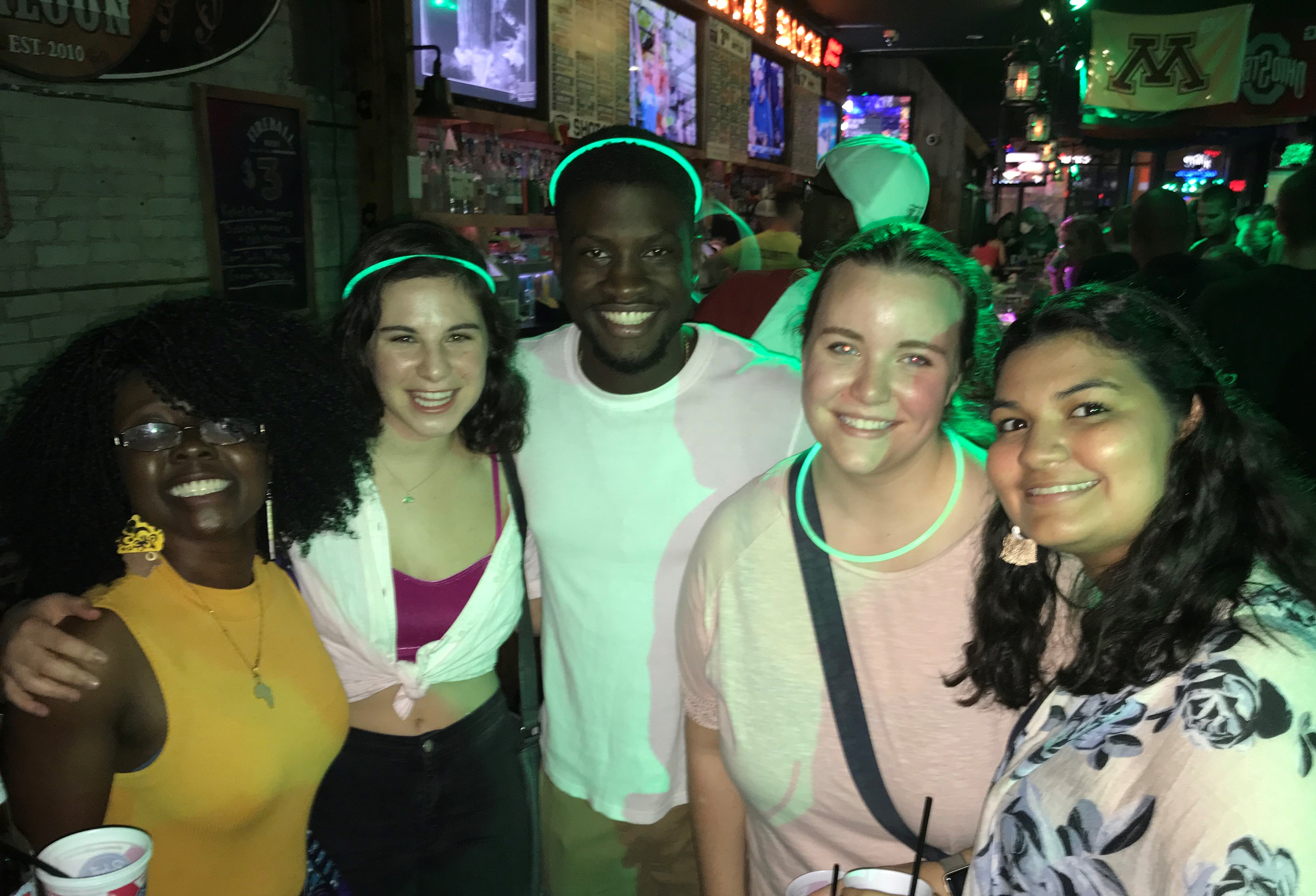
My last week. Looking back on it now, it wasn't really as busy as I felt it was. I felt like I never had a spare moment to think, and that's because I never stopped thinking! I ended up meeting with Nicole one last time to ask how I should compare my models and for her to give the final OK on my presentation. There were only a few things she suggested I change and those were the last few slides having to do with my results and whatnot, so it wasn't a big deal. I also met with a bunch of people this week as Nicole suggested, to get any last pieces of advice before I leave and to get contact information (if I hadn't already) so I could stay in touch. I met with Joe, Professor Saffran, Xian, Jeff, and a few others from the lab and had a really nice dinner with Nicole. I gave my presentation titled "Adding Cognition to GitHub" on Thursday the 2nd and I think it went really well. I got several compliments afterwards and a few questions, and I went to the PREP party hosted by Professor Postle where everyone got to eat great food, have a few drinks, and talk about the summer. It felt so nice to be done, and it was fun talking with everyone and taking pictures, but it was also kind of sad. It was hard to believe that the summer was over and that we had all spent 10 weeks with each other. I left Madison Friday afternoon and decided to stay with my aunt and uncle again for a couple days before I went back to Kansas.
I will be forever grateful to Nicole, Joe, Professor Postle, Jackie, all of the people in my lab, and all the PREP students for making this summer one of the best I've had in a long time. My time in Madison has changed my trajectory and my thinking and probably my future for the better. I know for a fact that it would have been a terrible loss for me had I decided two and a half months ago that I would stay home and work. There are so many people that I would have missed the opportunity to meet and so many opportunities that I would have never known of. If anyone is reading this and trying to decide if they should apply for the DREU program: DO IT. It could change your life, and you with it if you give yourself the chance.
This week's lab tour was our final lab tour of Dr. Lupyan's lab. In his lab he focuses on research of how language shapes us and our world.
Lupyan LabFor our final faculty lecture, Dr. John Curtin showed us his research in addiction rehabilitation and lapse prediction. There are several projects he has worked on that use individual's passive information (ie. heart rate, geolocation, etc.) as input to a machine learning algorithm that would predict when they might lapse from their rehabilitation. His talk was very interesting and we went 20 or 30 minutes over our time asking him questions about the projects, and specifically their future directions. I feel bad for not adding more here, but am rather pressed for time this week!
Dr. Curtin's Faculty PageThese weeks just keep getting busier and busier! This week I participated in two different conferences and worked with Nicole on getting three different models up on my computer as examples for me to use to make my own. It was extremely helpful to sit down and work with her one-on-one to get the models up. We worked through bugs, talked about some potential hypothesis I could look into with my data and help me understand what I was doing wrong with the linear model last week. We also talked about what I can use to help visualize my results when I get there, general advice for graduate school, and something that has been on my mind for a while which is whether or not I should take a year off before I go to graduate school. She said that I should only do that if I really need to and only if I get some sort of research aid or lab manager position. Her advice was very helpful and it was nice to have a good long conversation with her about everything on my mind. I really don't know what I would do without her guidance, and I know for a fact that I wouldn't be here in Madison without her. The next day I was able to sit down and decide what I wanted to ask about my data. I came up with a couple different hypotheses, chose one to start with, and was able to get working models to answer my question. My only problem now is that I'm not entirely sure how to compare them. I have two confusion matrices and lots of statistics I can calculate from them, but I don't know which I should use for my presentation. Hopefully, next week I will be able to meet with Nicole again and get some more advise.
Not only did I get to attend MathPsych this week, but I also got to attend CogSci! For three days I attended workshops, talks, and symposiums about sever different topics within cognitive science, and here I will mention a few that I felt were the best. First was the all-day workshop I attended on Learning as Program Induction. Program induction is when a program (or function) writes another program(function). I have always thought of this idea as a bit weird, but I liked using it as a metaphor for learning. The talks on this subject were all very interesting, but some of them were much too technical for me to follow and understand. The next were some short research talks during a session called Emerging Language. All of the talks were very well done and extremely interesting to me. In particular, there was one talk about linguistic accommodation made when speaking to foreigners and how it can lead to language simplification in extreme contexts. I asked if they were thinking of using a similar model to represent child directed speech and to understand how it changes over time, and the speaker told us that they are currently working on those kinds of questions. The last one I will mention here was a set of talks by invited speakers on false news. Many interesting subsets of this topic were discussed including how false information may manifest and how to prevent it, the role of information bias in making individual's views more extreme, the role of curiosity and intelligence in the spread of false news, the ability to distinguish false news from real news on social media, and a comparison of two different theories (models) of how and by whom false information is spread. These talks were so amazing and inspiring that I considered changing my own field of research! This topic is fascinating to me anyway, but the work they did, and the conclusions they found were so interesting that I couldn't help but imagine myself doing the same thing in graduate school.
All said and done, I am so thankful that I got to go to CogSci. I really enjoyed myself and during the poster session on the last day of the conference I got the chance to meet Professor Feldman! I feel so lucky that CogSci was in Madison this summer and hopefully I will get the chance to go again next summer.
CogSci 2018Today I volunteered at the MathPsych Conference. There wasn't very much that the organizers needed help with so I got to enjoy myself and attend the talks. There were several that I enjoyed, but the one I enjoyed the most was a talk by Professor Naomi Feldman from the University of Maryland. Her talk, titled: From Real to Idea: How Listeners Cope with Variable Linguistic Input, discussed the existence of an input filter that allows listeners to create an idealized input from the original speech stream. This filter was modeled with a noisy channel model and was able to produce accurate representations of both vowel perception (the perceptual magnet effect) and consonant discrimination (categorical perception) by only changing a single variable. She discussed how children might use this filter while learning language to remove bad or unlikely data from the speech signal. I think I enjoyed her talk so much because everything she proposed made sense. Maybe the reason we misunderstand someone while they are speaking is because our filter created an incorrect representation of what the speaker said, and why we find in some cases that we can still interpret what people say when they mess up their speech. I am very interested to see if their model can be expanded, and if it could help us understand how we parse a speech stream.
I was hoping I would get the chance to meet Professor Feldman and ask her some questions about her talk and her research, but it did not arise. One thing is certain in my mind, and that is I would like to work with her some day.
MathPsych 2018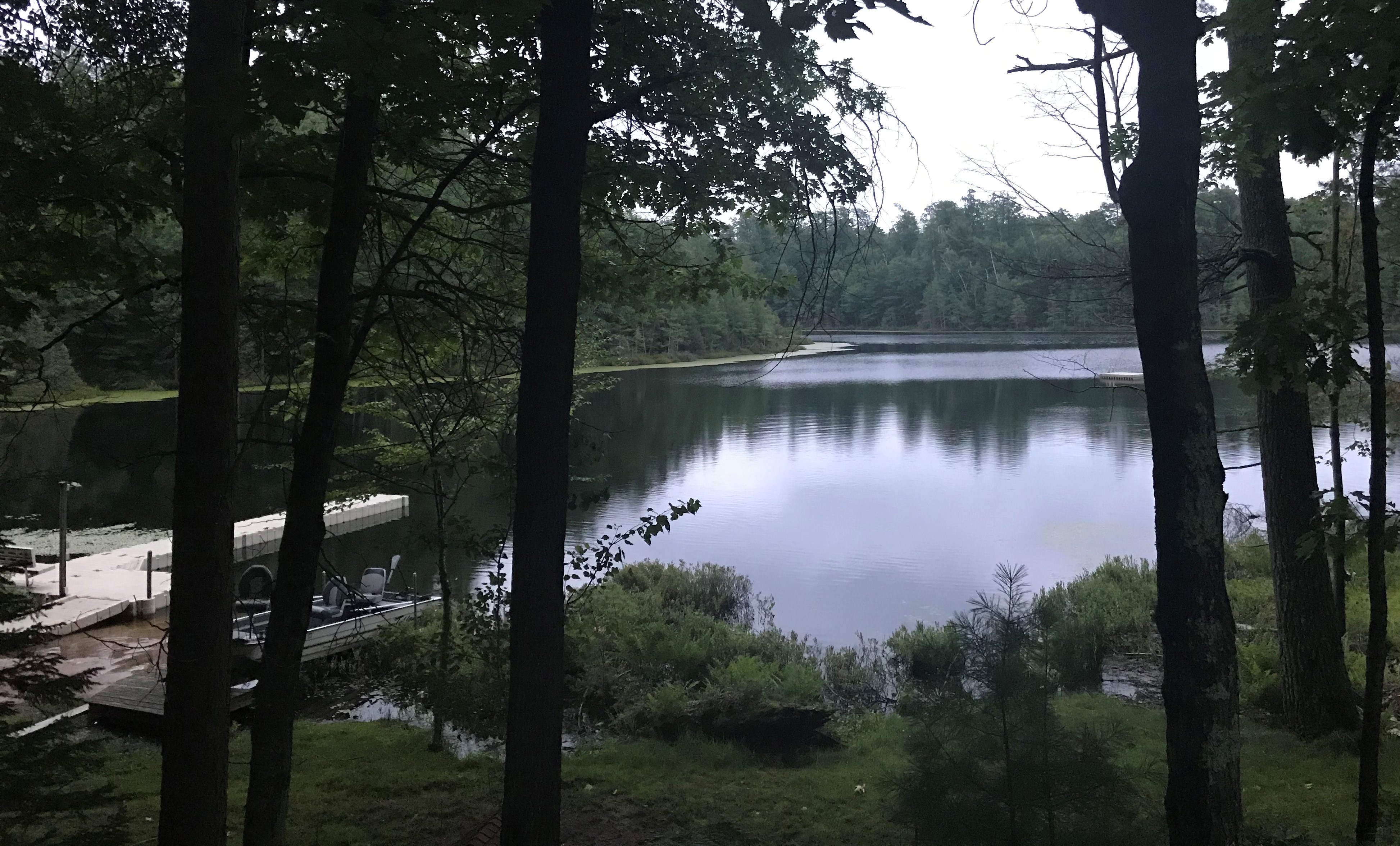
This weekend I drove up to Minoqua Wisconsin to visit my Aunt Kathy and Uncle Marty and a few of my cousins. I had such a great time swimming in their freezing cold lake while it was raining, catching up with my cousins while sitting next to a fire, and going to church with my aunt and uncle. It was absolutely gorgeous up there! Their lake was so clear and so calm, I felt like I was in a completely different world just sitting on the dock with my feet in the water. I feel like I could have stayed there forever. But, I could only stay for the weekend. I am very glad I went and visited them because it gave me a chance to really relax and forget about my work so that I could come back to Madison refreshed and ready to finish the summer!
This week I feel I've been on my A-game despite Nicole's absence! She is gone to participate in the DARPA challenge and I wish her and the team the best of luck! As for me, the kmeans process from last week finished successfully over the weekend and I now have all of the data I need to create and run my own model! Since the variable I am wanting to predict (which is the event type) is a categorical variable, I began looking for examples of models that predicted categories and found a page giving a tutorial on how to create a linear binomial model to predict gender. I wasn't sure if it would be a problem that I had more than two categories, but I tried it anyway. I've been working on it for most of the week and the model runs but I always end up getting a memory error. The trouble is that I know for a fact that I have plenty of memory for the task to finish, so there has to be something else going on. For now I will be spending the weekend working on other things that need my attention like my presentation and when Nicole gets back I will ask for her help. The one unfortunate thing about being so focused on my work is that I missed the reading group this week. I really chastised myself for it because that was the second meeting I had missed in a row, so on Friday I was very conscious of myself and made sure I didn't miss the lab meeting. Ironically, it was the shortest lab meeting we've had this summer. We were supposed to have one of the undergrad students practice presenting their research talk for CogSci, but Joe told us they weren't feeling well and couldn't make it, and since there were no other announcements or discussions that was it. Besides those things, I also went to the SROP Graduate School Resource Fair and talked to some representatives of different programs here at UW. Everyone I spoke with assured me that I would be a good candidate for their program and encouraged me to apply which made me feel very confident and proud of my accomplishments. It's not every day that I feel proud of myself and the things I have done, but this week was quite a bit of that, and it's probably why I've been working well this week. Lastly, the PREP manager, Jackie, sent me an invitation to be in the group picture for their website. I was kind of surprised to be honest. I felt that I have been more of a guest in their program and don't want to impose that I am a member just because I got funding from elsewhere and happened to be working in the same department over the summer. But, Jackie didn't seemed phased and told me that I was part of the group. It still amazes me how generous these people are, and I am so lucky to have gotten the chance to work with them and get to know them.
Today's faculty research talk was by Dr. Saffran where she gave a nice overview of what she studies in her lab. Her main focus is on how children learn language, but her research and her graduate student's research can vary within this field. The first thing she had us do together was make a list of things that people know about their native language that they don't know about a foreign language. We made a good list including things like syntax, vocabulary, intonation, tone, word frequency, word boundaries, pragmatics, phonetics, morphology, and phonology, and we discussed each. The reason we made this list is because these are things we intuitively understand with our native language. It is a lot of information, and some of this information are things that most people are not aware of either. So, how do children figure it all out so easily? Dr. Saffran believes it is largely due to infants' incredible perception of statistical patterns, of which natural language is riddled with! Her example was a study she did in 1996 about how children identify word boundaries. They found that children are very good a tracking the probabilities of different sound combinations and using those to infer breaks between words. This paper was extremely influential in both Linguistics and Cognitive Science and has be cited hundreds of times. And, she and her students continue to do influential work in the realm of first language acquisition with normal and abnormal developing children.
Dr. Saffran's Faculty PageThis week's lab tour was of the Cognition In Action Lab run by Dr. Rosengren. Most of the focus in this lab is the intersection of cognitive and motor development, for example one study in the lab looks at certain errors that children make like when they try and fit their bodies into something too small or when they try to grab an image that looks real from a book or even a tablet. Another is a study looking at the paper folding test: a method used in many schools to test children's spacial reasoning skills. They hope to determine if this test is a good measure for spacial reasoning and use the method to improve children's spacial reasoning. The last was a study on health and illness in different cultures. This study looks at how children understand the common cold and the influence of their parents and their culture in this understanding. The two groups they are working with currently are American families and Latin American families.
Cognition In Action!This week I was able to run the kmeans clustering analysis successfully! I used a few different methods to determine the best number of clusters to use and decided that three clusters fit the data best. In my three clusters, I found that the individual users were not separated from the organizations in any of the clusters which is very interesting! If I could I would look to see if those individuals who were included in the smaller cluster of mainly organizations represented an organization or if the organizations that were included in the large group of mainly individual users were small startup companies. I think it would definitely be an interesting result, but I don't have a way to go back to the original data and determine what kind of individual user or organization the users are. I also had a meeting with Joe early on in the week. He asked me how my project was going and how I was doing, and I asked him about applying to graduate schools. We talked for quite a while and he gave me a hefty list of names and schools to look into! I certainly should start working on that list while I'm here while it's easy to find and discuss things with him and with Nicole. I also met with Nicole this week where we talked about what I had found and what my next steps were. I made a new table that contains information from both the user and the event tables to see if I can combine information about an event and its author and owner to predict the event type. So I started with the event table and replaced the author id and owner id with their respective information from the user table. I also included each user's kmeans cluster group as a source of 'cognitive' information about the user. I was able to create the table, but because of how I ran the kmeans analysis I didn't have all of the users included in the event table and subsequently was missing about half the events from the event table. Because of this, I decided to rerun the kmeans analysis in a way that allowed me to include all of the users from the user table, and then began the process of making the new table again. The process ran overnight and finished Saturday morning, so I probably won't look at it until Monday of next week. Because of all my hard work on Friday, I accidentally missed the lab meeting! I messaged Joe about it and he assured me it wasn't a big deal, but I still felt guilty about it. I believe that there were MathPsych practice presentations that day and I hope they went well.
Reading Group Week SevenFor our seventh faculty talk, we learned about Dr. Saalmann's research in consciousness. He is interested in how information in the brain is transmitted and more specifically how it flows through the thalamo-cortical network, which is the network of pathways from areas like the frontal and parietal lobes to each other and through the thalamus. They have found that the thalamus regulates the cortical activity and flow of information in this network. They have also found that stimulation of the central thalamic region results in arousal when under anesthesia. But is this merely arousal or is there also awareness? Dr. Saalmann hopes to continue to investigate this question and more regarding the role of the thalamus in our conscious minds. This kind of research is so interesting and I intend on following Dr. Saalmann's research to see the strides he and his students make in this field.
Dr. Saalmann's Faculty PageYes this is technically supposed to be my fifth lab tour, but I missed the fifth one during my week off. So, to stay consistent with the calendar this is the sixth lab tour. And what a marvelous one it was! We went up to the Infant Learning Lab run by Dr. Saffran. In this lab they study how infants, toddlers, and young children learn language. They showed us several studies they conduct where we got to interact with them as the children would. The first was a study looking at how children learn under unexpected conditions and if it is different (possibly more novel, or more confusing) than under expected conditions. To clarify what I mean I will describe the study. Through a video, a child sees a person with two novel objects (made from play dough) on their right and left, the person picks up one of the objects and says something along the lines of "Look at this!" They continuously pick up this same object over and over again for a short time so that the child would grow disinterested in it. Then the objects switch sides. The expected condition is for the person to pick up the same object that is on the opposite side, and the unexpected condition is for them to pick up the other object. They then name the object and later test to see how well the child learned the name of the object that was picked up using eye tracking. So, they are trying to determine if there is a difference between the two learning conditions.
The second study was about gender in the context of learning. They wish to know if the gender of the speaker influences how quickly children identify objects. They have paired objects that are either colored neutrally in terms of gender, or one object is gendered towards girls and the other towards boys. Then they have a male or female speaker ask the child to identify one of the objects. For the gendered pairs of objects, their hypothesis is that children will find the object faster or before the object name is spoken if the gender of the speaker matches the gender of the object.
The last study was about learning names of novel objects using priming. In this study, children are shown two pictures on a screen, one known object and one novel object. They are asked to identify one of the objects. Even though they do not know the name of the novel object, since they know the name of the familiar object they can easily identify which object is being asked for. In doing this they learn the names of the novel objects. The researchers specifically pair some of the novel objects with toys and the others with food with the idea that when children learn a new word it will tend to be in the context of words in a similar category. After the training period, originally the researchers asked the children which of the novel objects they could eat. This method came with complications, for instance some children said they could eat both because they were made with play dough. So instead, the researchers turned to a head turning task. The experiment set up included three different screens, a center, left, and right screen. The child would sit and face the center screen watching an animated image. The image would then move to either the left or right screen and two words would be repeated. When the child gets bored of the two words they turn their head away, and the image goes back to the center screen. The image would then move to the opposite screen and two other words would be repeated. This method is repeated for about ten minutes, and the duration of one set of words is dictated by the child's interest in those words (or their novelty). The idea is that two words like 'dog' and 'cat' said together will not hold a child's attention as long as two words that are not of the same category like 'dog' and 'shoe'. This is how the researchers tested if the priming effect of grouped images in the first part of the study allowed the children to learn those objects and group them in the same category as the other images they were presented with. I was skeptical at first that a child would be able to pick up on this pattern because I didn't notice it myself, but the students assured me that children are much better at recognizing these kinds of patterns than adults are and that their experiment has been successful in finding this behavioral effect. One of the reasonings behind this is that children are more imaginative and more able to use the context of their surroundings to define or understand an object.
If you can't tell I am extremely interested in these sorts of studies and I really enjoyed this lab tour. I am just utterly fascinated with the way children learn language. They are just tiny little machines that aren't good at anything else except learning language. It is amazing to me, and I feel that even tiny steps towards understanding how children are able to do this so easily will dramatically increase our knowledge of the brain and its structures as well as improve our techniques of Machine Learning and Artificial Intelligence. I think this would definitely be a feasible option for me as I look for graduate schools and research opportunities.
The Infant Learning Lab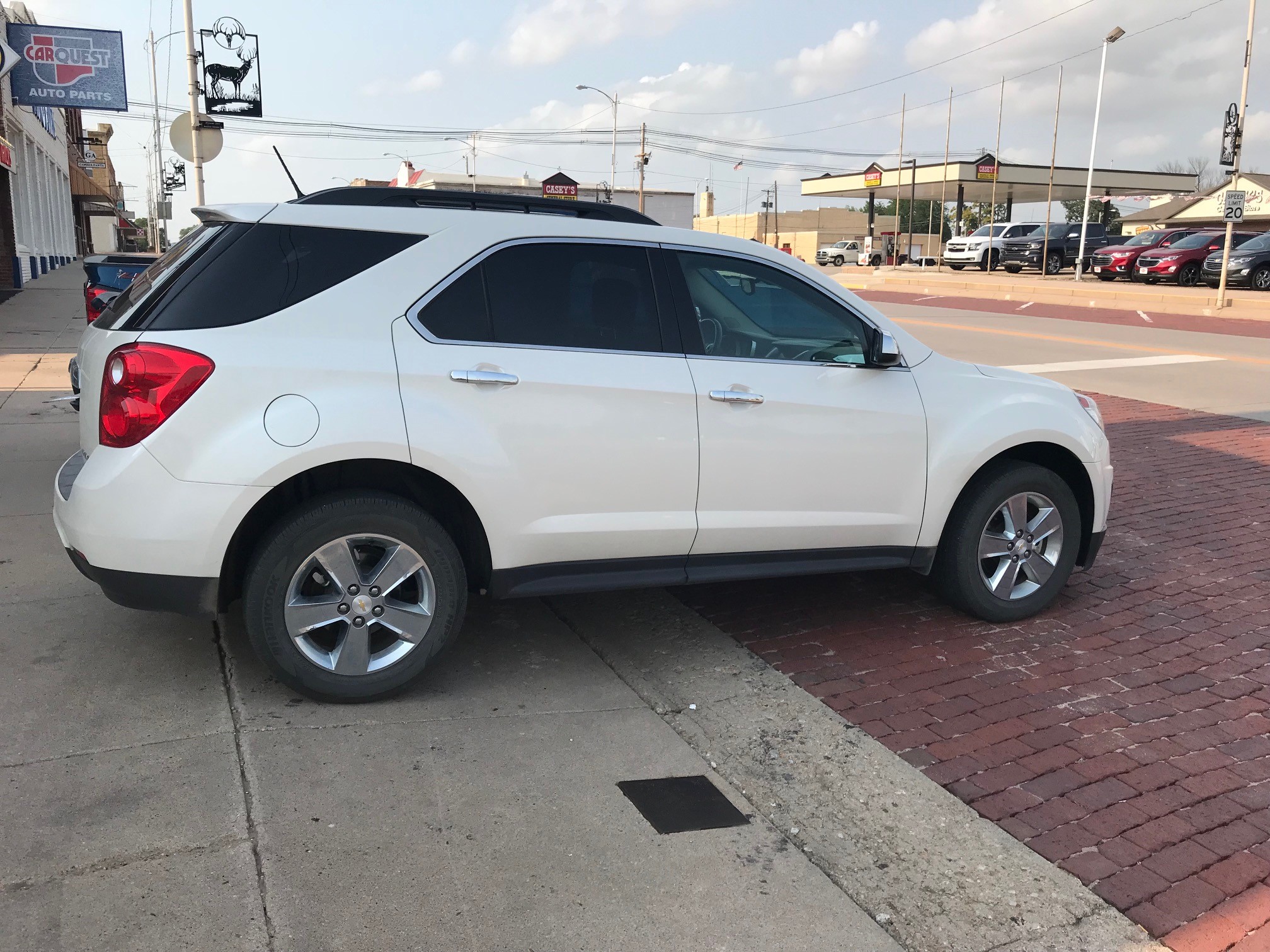

My goodness this week has been busy! I came home with the intention of relaxing and spending some necessary time with friends and family, and I did do a bit of that but there was also doctors' appointments, traveling to Hoisington, Kansas to get a new car from my Uncle's dealership because my truck had completely died, packing up all of my belongings so that Ethan can move us out of our current house while I'm gone so that we can move into a new apartment a couple days after I get back, going wedding dress shopping with my bridesmaids, and of course worrying about all of the work I have left to finish here. In the end it was extremely difficult to leave home again, especially because it felt like the week just flew by and I didn't get any time to really relax. But, now that I am back I just need to keep chugging along at a good pace and I will be back home again before I realize it!
While on vacation at home, I had a meeting with Erick and Jon on campus. It was really nice to see them again and talk about everything we want to finish this coming semester. I told them about what Nicole and I talked about a few days before I left, Erick told us about where he was with his side of the project, and we talked about our plans for the poster we will be presenting at the upcoming Tapia conference. Jon also told us that he will be out of town for the next couple weeks, so we probably won't meet again until my last week here in Madison.
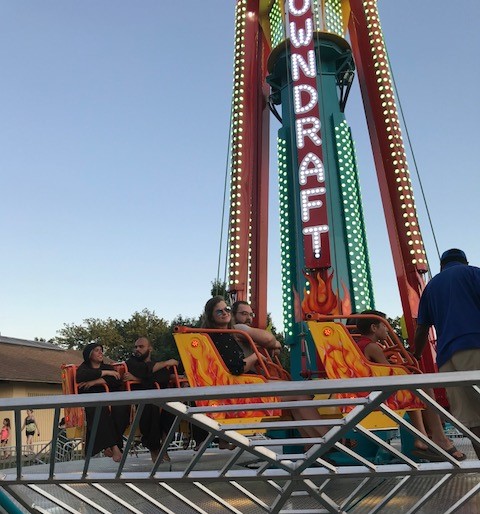
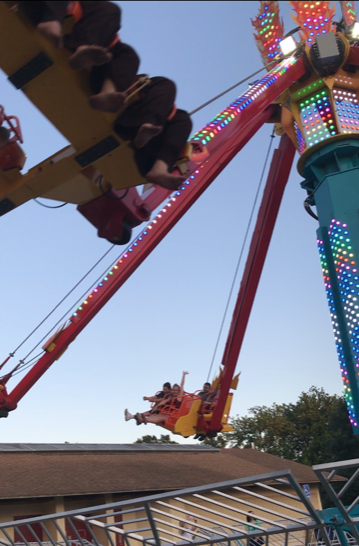
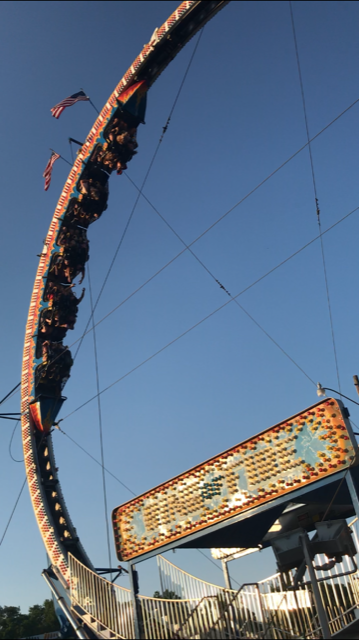
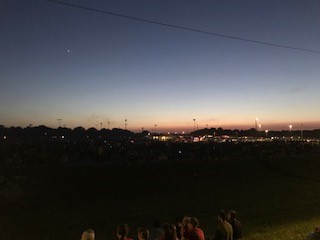
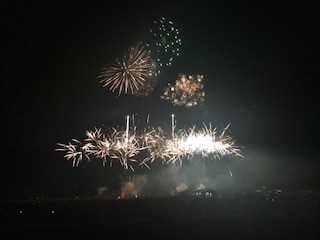
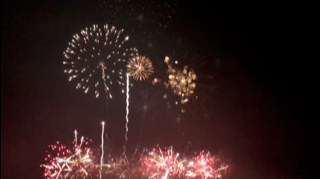
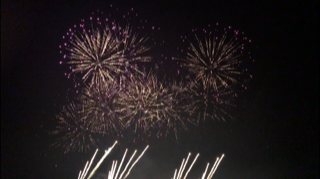
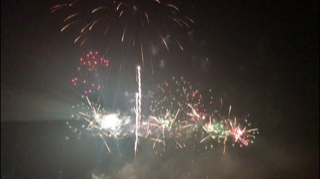
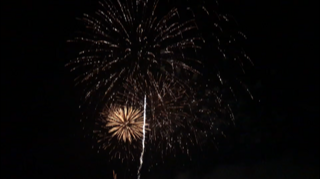
Happy 4th! I hope everyone up in Madison is having a good fourth of July because I know I did! Ethan, myself, and some of our friends drove out to Wamego, Kansas which is home to one of the largest fireworks show in the state! And they weren't lying! There was a huge carnival with games, rides, and food that folks said had been there for almost a whole week, and the fireworks show was absolutely incredible! It was like a grand finale with music for over 30 minutes! The pictures I have here really don't do it justice.
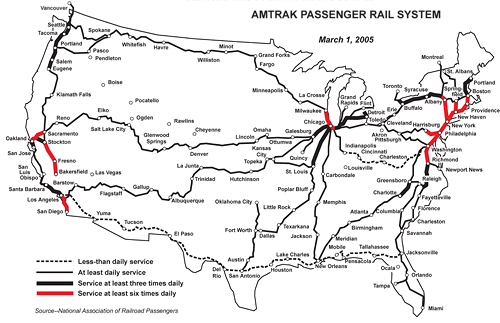
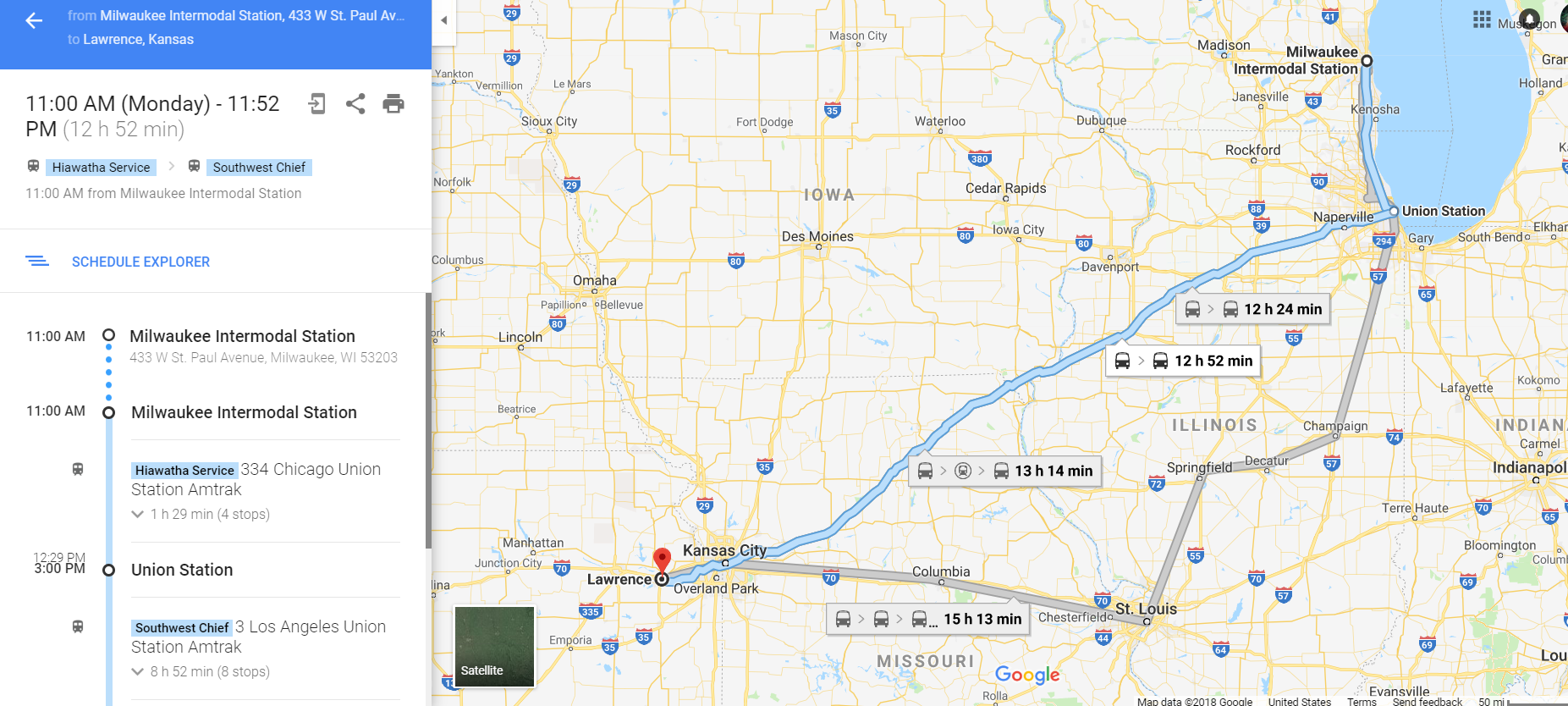
Yesterday I began my vacation by traveling back to Lawrence, Kansas via train. I had never traveled by train before and I wasn't really sure what to expect, but I found that it was kind of fun! My first train left the Milwaukee station at around 11am and arrived in Chicago at the Union Station around noon. After that I had a few hours of layover which gave me time to stretch, get lunch, and look around a bit. My next train left Chicago at 3pm and arrived in North Lawrence at 11:45pm. It was a long ride, but it was pleasant for all except the last two hours which dragged on and on! Well I was happy to be home, but sad that I overheard the conductor talking to one of the other passengers about Amtrak closing this line. The Southwest Chief (the line I was on) travels all the way from Chicago to Los Angeles, but there aren't many people who use it anymore. Either way, I was very happy that I could take it to get home safely.
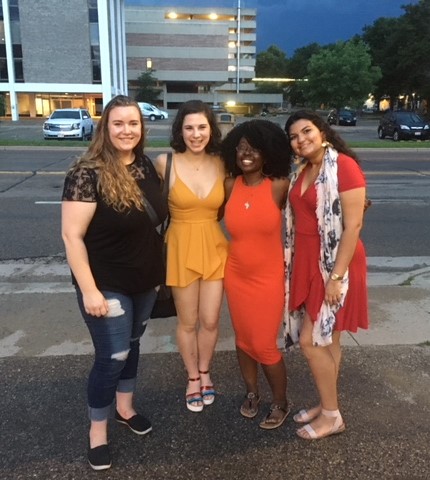
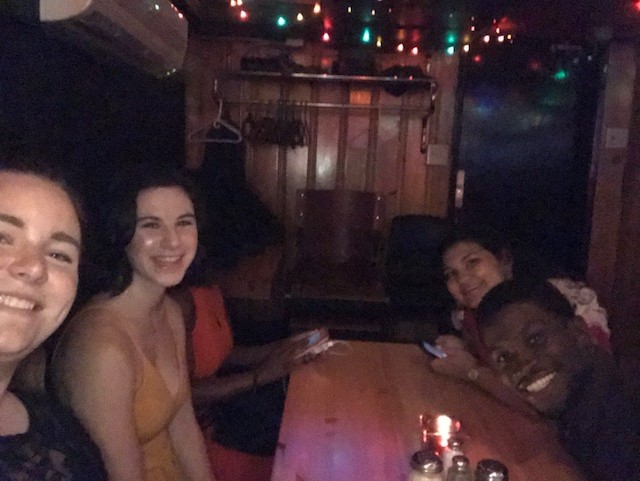
This week the other PREP students and I have been planning a little surprise party for Sophie's Birthday. She knew that we would be going out to eat but what she didn't know is that when we got back to the Regent there was cake and drinks and games and music! She was so surprised when she walked in because she and I had gone downstairs so see if she received any mail while Pamela and Chelsea got everything set up. We all had fun talking and playing Cards Against Humanity and I'm really glad we got to do something special for her!
This week I submitted my DREU progress report, so the only requirement left for my third stipend is for Nicole to submit her progress report as well. I requested funding for CogSci and was awarded funding to cover the registration. I was also awarded the Tapia Travel Scholarship, completed DARPA privacy training, registered for both Tapia and CogSci, and found a tutorial on kmeans clustering analysis using the cluster and factoextra packages. If I follow the tutorial I should be able to visualize and determine how many clusters we should use for the data and find the clusters. I also finished coding the Monte Carlo simulations and showed Erick and Jon my results during our skype meeting (which can be found on my website). One thing I learned about this week was Jupyter notebooks. Dr. Rogers showed us one of his notebooks while telling us about his project and I really liked the idea. I really want to start my own and transfer all of my R code to the notebook in order to keep my code better organized, but we will see if I have any time to do that.
Reading Group Week SixThis week for our lab meeting, two undergraduate students will be giving presentations on their current work. First up was Jackie who is working on a study on synonyms. She wishes to understand how people choose the words they use in normal speech and is currently working on creating her experiment. She had a few tasks in mind that she could use, and the graduate students and post-docs were very helpful in giving her advice and new ideas. I really liked her presentation because it was very clean and concise. Next was Sichao who has been working on coding models of different sampling techniques used in studying MCMC Marcov Chains. Most of his talk was a bit over my head, but the demonstrations of his models were really cool and produced quite a bit of discussion.
Today we had our fifth faculty research presentation given by Dr. Tim Rogers. He decided to speak about some new research that he and one of his graduate students has been working on, and that one of the PREP students, Yves, is helping them with. The project focuses on false beliefs and how they occur. He gave us three reasons that someone may have a false belief: a lack of knowledge in a certain area, it is something that aligns with their preferences, ideology, world view, or self image, or a third option given by cognitive psychology. He continues by sidetracking to statistics for a moment. Our minds are optimal, statistical engines and when we make predictions, generalizations, or inferences about something we have perceived and it is incorrect, it may lead to a false belief. This is a valid reason for seemingly small beliefs or misconceptions, but what about larger ones? Do larger scale beliefs occur in patterns? Can we expect coalitions of incorrect beliefs to co-occur? And if they do, can we predict how susceptible someone is to a certain belief? These are the questions of their current research where they use surveys of people from around the world to find patterns of beliefs. This was an extremely interesting talk and I'm afraid we may have given Yves more work for the rest of the summer than he anticipated!
Dr. Rogers' Faculty PageThis week we had the pleasure of touring the Learning and Transfer Lab. In this lab their research focuses on human learning in the perceptual and cognitive domains. In some of their research they develop models of learning based on cognitively challenging tasks. What they would like to be able to do is use their model to predict how a user might learn a new skill or improve a cognitive task over a certain period of time. Some of their other research focuses on action video games. They are interested in the effects video game play has on vision, multitasking, and processing, and have several different experiments going on involving games like Guitar Hero, Call of Duty, and a game made specifically for their lab. The name of this game escapes me but I was a cool first person shooter game made for kids where the researchers could control very specific aspects of the game (like fog density, speed of movement, number of enemies, ect.) using an API over the internet.
The Learning and Transfer Lab

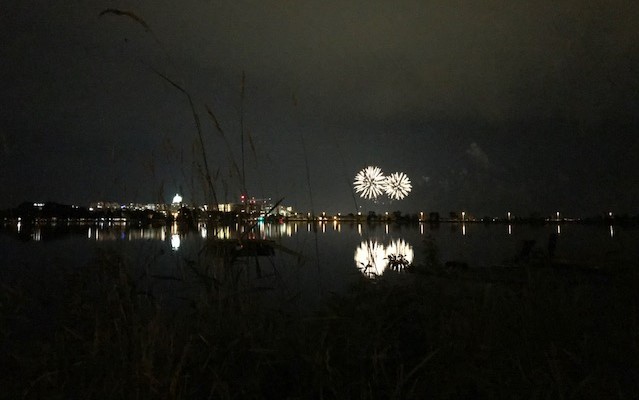
Last night, there was a surprise fireworks show over the lake, two blocks from our house! It was for a festival called Shake the Lake. I had no clue it was going on all day. I had been to the grocery store earlier that day and overheard people talking about fireworks that night, and I just assumed it was an early fourth of July celebration or something. Nicole told me about it later and invited me to come with her and her parents to sit by the lake and watch the fireworks. There was a small crowd of people all sitting next to the lake or on their porches, and someone had found the radio station that was playing music to go with the fireworks! It was such a nice evening and I am so glad that I got the chance to go!
Shake the Lake FestivalThis week I completed the requirements for my second stipend and will continue to work and keep this website updated. Below you can find the link to the requirements page for the other stipends. I also wrote out all the user models we want to look into in detail. Nicole suggested that since we won't have time to try and build and test our own cognitive models from these representations that we should start by using a clustering algorithm that can give us our user groups based on the user data we have. One of the papers I read recently, which I will link down below, did something similar in their study and so I decided to use the algorithm that they used which is the k-means clustering algorithm. This algorithm is available in R so I will be doing some digging to find out how to run it and what packages I will need. I'm sure that there are many ways to do this, so I will have to work with Nicole to find the best option for our data. There is one package that I know of called caret which allows users to select one of their supported machine learning algorithms and train, validate, and test their model easily. This might be a useful option, but I will have to look into it more. This week I had another video conference with Erick and Jon, I applied for a travel scholarship for aid in traveling to the Richard Tapia conference this year in September (Erick and I will be presenting a poster on our research at KU), and I participated in the reading group.
DREU Requirements Analysing the 'Biodiversity' of Open Source Ecosystems: The GitHub Case - Matragkas 2014 The Caret Package The 2018 Richard Tapia Celebration of Diversity in Computing Reading Group Week FiveToday was my first lab meeting here at UW, which was also the first lab meeting of the summer. It was fairly short with introductions (name, position in the lab [ie. undergrad, postdoc, ...], research interests [optional], and your favorite introduction question [ie. favorite animal, hobby, weirdest experience, ...]), creating a schedule for the summer, and talking about the conferences that will be hosted here at the end of July and beginning of August (MathPsych, CogSci, and eLucid). Overall, it was a nice meeting and I am excited to be at the next one because two of the other undergrads will be giving short presentations. Below is the lab schedule and then a link to the lab page.
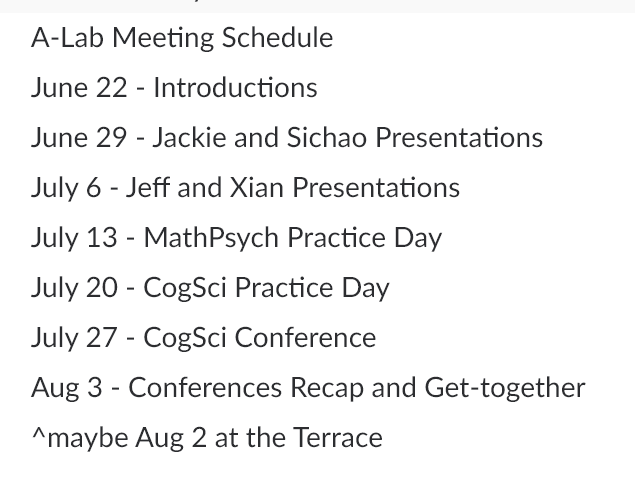 The Austerweil Lab
The Austerweil Lab
Today our fourth faculty presentation was given by Dr. Rosengren who is a lifespan developmental psychologist. Dr. Rosengren began his discussion talking about his interesting journey through academia. He and his wife were originally both professors, but his wife took a job within the administration at their first university (University of Minnesota if I am remembering correctly). As his wife took jobs at different universities over the years, he was able to follow her and find a place in every department he found himself in. He mentioned that in order to dispel any assumptions that he only got the job because of his wife's position, Dr. Rosengren worked twice as hard as he needed to and proved his worth to the community every single time. I really appreciated his story because it is not one that people see every day. He told us he felt it important to use himself as an example because, even though we might want it to be, the road to (and through) academia is not always a straight line.
Professor Rosengren also told us about his research in child cognitive development. He is very interested in answering questions like 'How do children think about the world?', 'How do they differentiate between the real world and fantasy?', 'What kinds of things do children believe are magical?', 'How do children understand death?', 'How do parents communicate with their children about death?'. We spent quite a bit of time in our discussion about how children understand death and how their culture and environment shapes their perspective on death. Specifically, Rosengren has studied the difference between how Americans generally view death and how Mexicans view death. In America it is very common to shield children from death, especially the death of a family member, and often families do not teach their children about death with the worry that it will scare them or that they will not be able to understand. On the other hand, in Mexico it is common for families to talk about death. The Dia de Muertos (Day of the Dead) is a holiday beginning October 31 that is celebrated throughout Mexico. It is a celebration of those who have died, where the people believe that the dead come back to visit the living. In these two very different cultures, Professor Rosengren has found a large difference in how children understand death, and has also found that these cultures and their methods of informing children about death have an effect on how adults handle death later on in life. This discussion really struck a cord with me, as it may have also with some of the other students. I believe this research is very informative and necessary because it is something that we can all relate to.
Dr. Rosengren's Faculty Page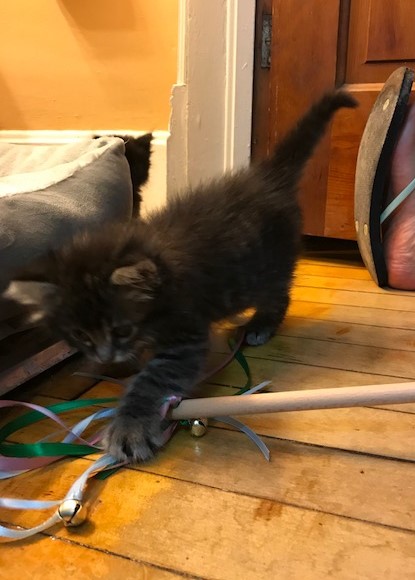
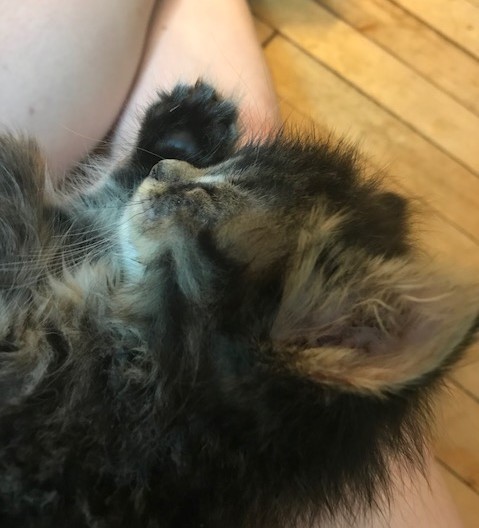
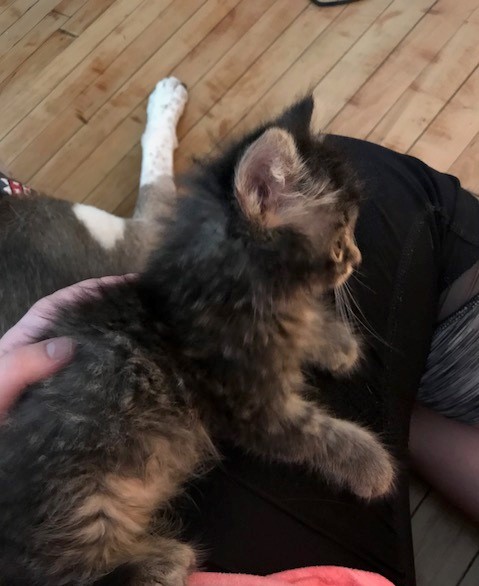
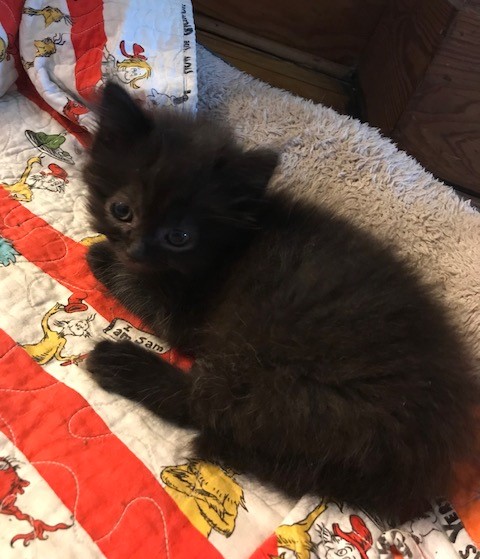
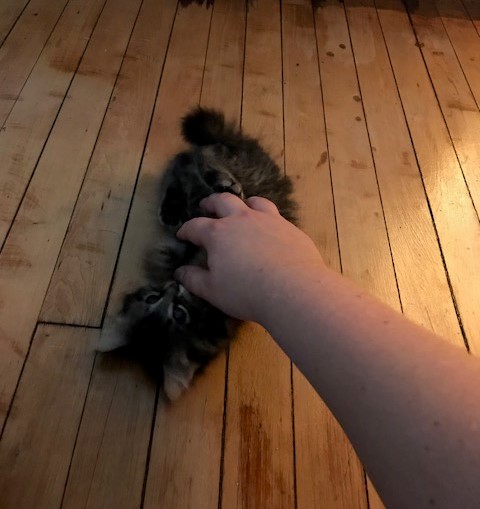
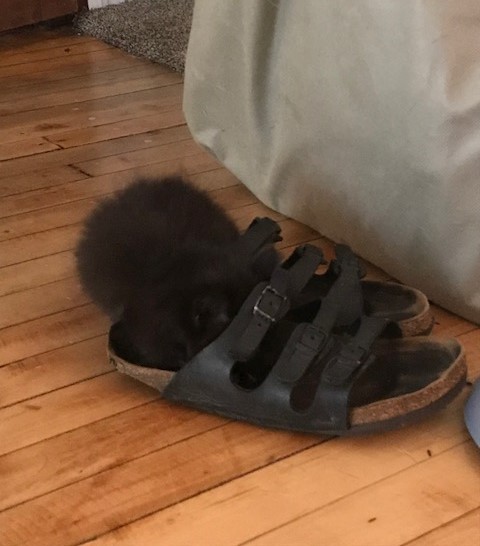
I have the best news of the day! Maybe even of the month! Nicole brought back the two most adorable tiny kittens on earth! One of them will be for my roommate Camille and the other will be for Nicole, but for now they are staying with Nicole so they can stay together for a couple more weeks. They are only about 5 weeks old, and they are just the cutest things! Nicole can't get over how different their personalities are. The striped one is definitely a trouble maker! She is feisty and climbs on anything and everything. The black one is more snuggly. He will just instantly start purring when I pick him up and then fall asleep! But, this day was not only about kittens. I got the chance to skype with my research partner, Erick Odiniyi, and our professor, Jon Brumberg, to talk about our ongoing research from this past academic year. We had an extremely productive talk and my notes from the session can be found in my blog for that project down below. Lastly for this post, our third lab tour was canceled this week because of scheduling issues in the lab, but hopefully it will be rescheduled for a later week that was not filled.
CREU Research Blog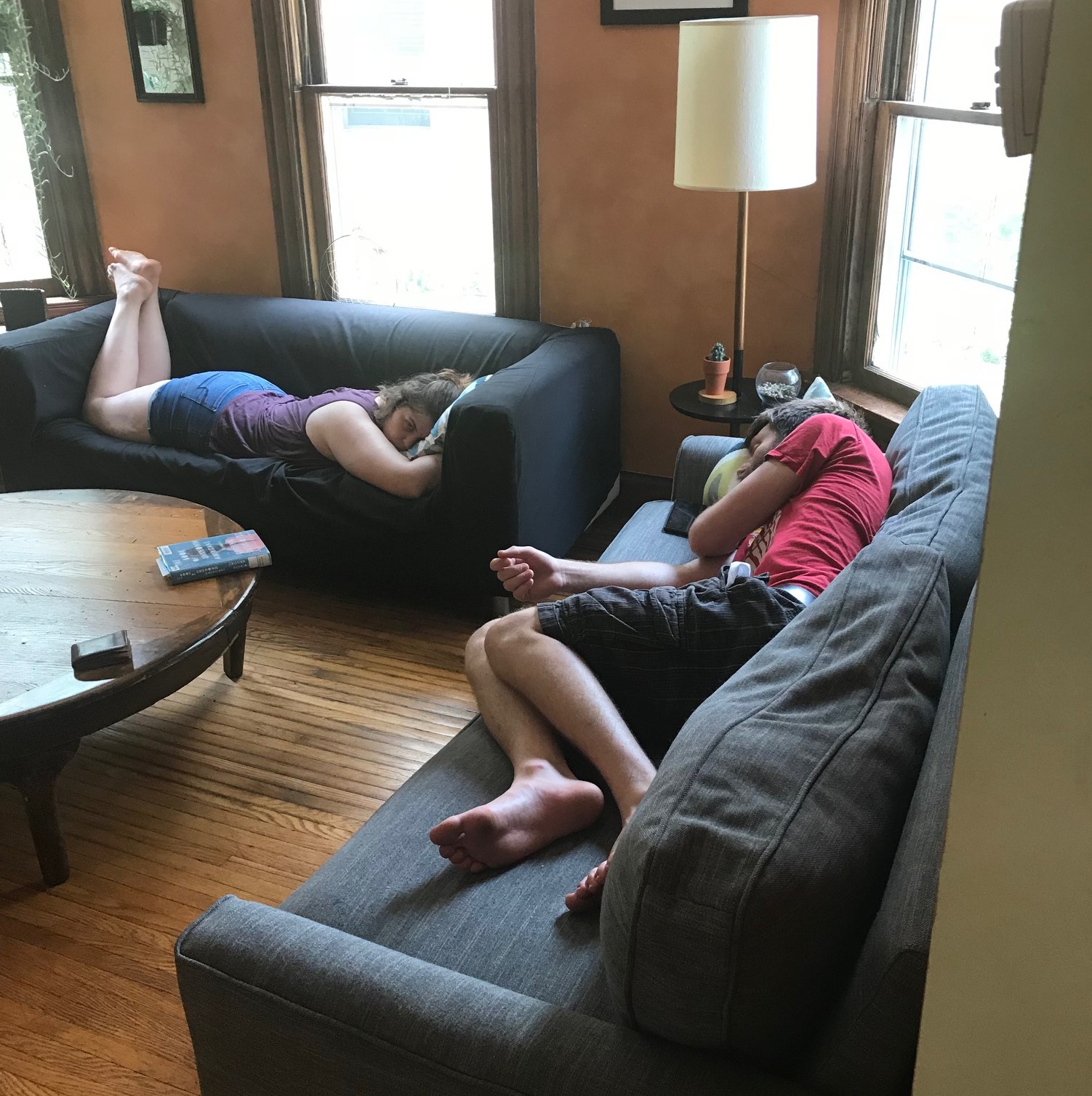
This past weekend, a couple of friends from Lawrence came up to visit and stay with me for the weekend! I took them up to the farmer's market, and over to State Street, and we spent a day in Chicago visiting museums and eating deep dish pizza, and we went swimming on a little tiny beach in Monona. It was really a great time, but it wasn't all play. My friends, Bethany and Roderick, are also my videographers for my upcoming wedding. They wanted to make a video of my fiance, Ethan, and myself talking about love, our relationship, things we hope for in the future, and all that jazz. They wanted to film us both separately while we are apart, so they decided to come up and film me in Madison. There is a bench just out in the backyard in front of a rose bush that they loved, so they plopped me down there and asked me a bunch of questions. They didn't give me any forewarning about their questions so all of my answers felt kind of jumbled and I'm sure I rambled on too much and didn't actually answer some of the questions, but I'm sure they will make a beautiful video. I keep a page on my personal website for the wedding and will post the video there when it is done.
I was so glad they got to come up! Not just for filming, but to see them again and have some company. It almost felt like they brought a piece of home with them, and a piece of Ethan. It was hard watching them leave, but I know it had to come sooner rather than later.
The WeddingIt is very strange knowing that I've already spent almost a month here. It's gone by slower than I anticipated, but it is also starting to pick up pace. I have outlined three different user models in detail that I want to explore which are explained in my working proposal, and Nicole helped me get access to the data I need to start working. It has been a very frustrating process trying to work with an SQL database I don't have any permissions to, but Nicole has been patient with me. Since then I have been able to write some code in R to start sorting through the data and understanding how everything is laid out. Unfortunately Nicole had to leave again for another conference this week, but I have plenty to work on now that I have access to data. I also finished writing an outline for the GitHub lit review and need to find time to sit down an write it out. I also sent an email to my research partner, Erick, and our research professor, Professor Brumberg, about finding a time to skype and discuss our ongoing research at KU which is documented on my personal website linked below.
Reading Group Week Four My Research PageDr. Marler gave our third faculty presentation, and I really like how she started her presentation. She began by asking us what we wanted to talk about. We had already introduced ourselves, but she wanted to have more of an open discussion instead of a lecture on her research. We asked about how she ended up in Madison, her journey to becoming a professor, about advice for applying to graduate schools, and of course about her research. Her research is focused on the neurobiology of social behavior in animals. She has studied many animals including fish and reptiles, and is currently working with a species of mice that mate with only one partner during their life. She is very interested in the physiological mechanisms that dictate this kind of behavior. She has also done some research on testosterone and the reward system that it is used in and its effects in the mysterious sense of location or territory, as well as oxytocin and its effects of group bonding. I really enjoyed her discussions and her advice on graduate school.
Dr. Marler's Faculty PageToday we had our second lab tour where we visited the Rokers Vision Laboratory. In this lab they research the visual perception of motion and depth. The first thing we did was test our depth perception with some 3D glasses. There were only a couple images I had a hard time identifying, so it seemed like my depth perception was normal. There was one student in our group who couldn't make out any of the images and told us previously that they had very poor depth perception. Part of the reason we did this first was because now the graduate student knew that they would probably have trouble doing the experiments and would possibly feel sick during the last one using the VR head set. He told us that participants who come in a fail this first test are not included in their studies because of these problems. The first study we looked at tested our ability to detect forward and backward motion using special glasses that showed our eyes 2D images. The images shown alternated back and forth between our left and right eyes at specific frequencies. It seemed very much like normal vision, but it took a while to adjust to the experiment because we had to determine if tiny flashing dots from a random point on the screen were coming towards or away from us and it was hard to follow them at first. More information on this specific experiment can be found on their website including the paper they published to the Journal of Vision. The next experiment we looked at was a game of VR Ping-pong! In this experiment we had to watch a ping-pong ball and try to determine where the ball would stop by moving the paddle to that location to intercept it. It was actually fairly difficult because the ball could move in any direction. It was particularly hard to distinguish where it was going when the ball was moving directly towards or away from us.
Visual Perception Lab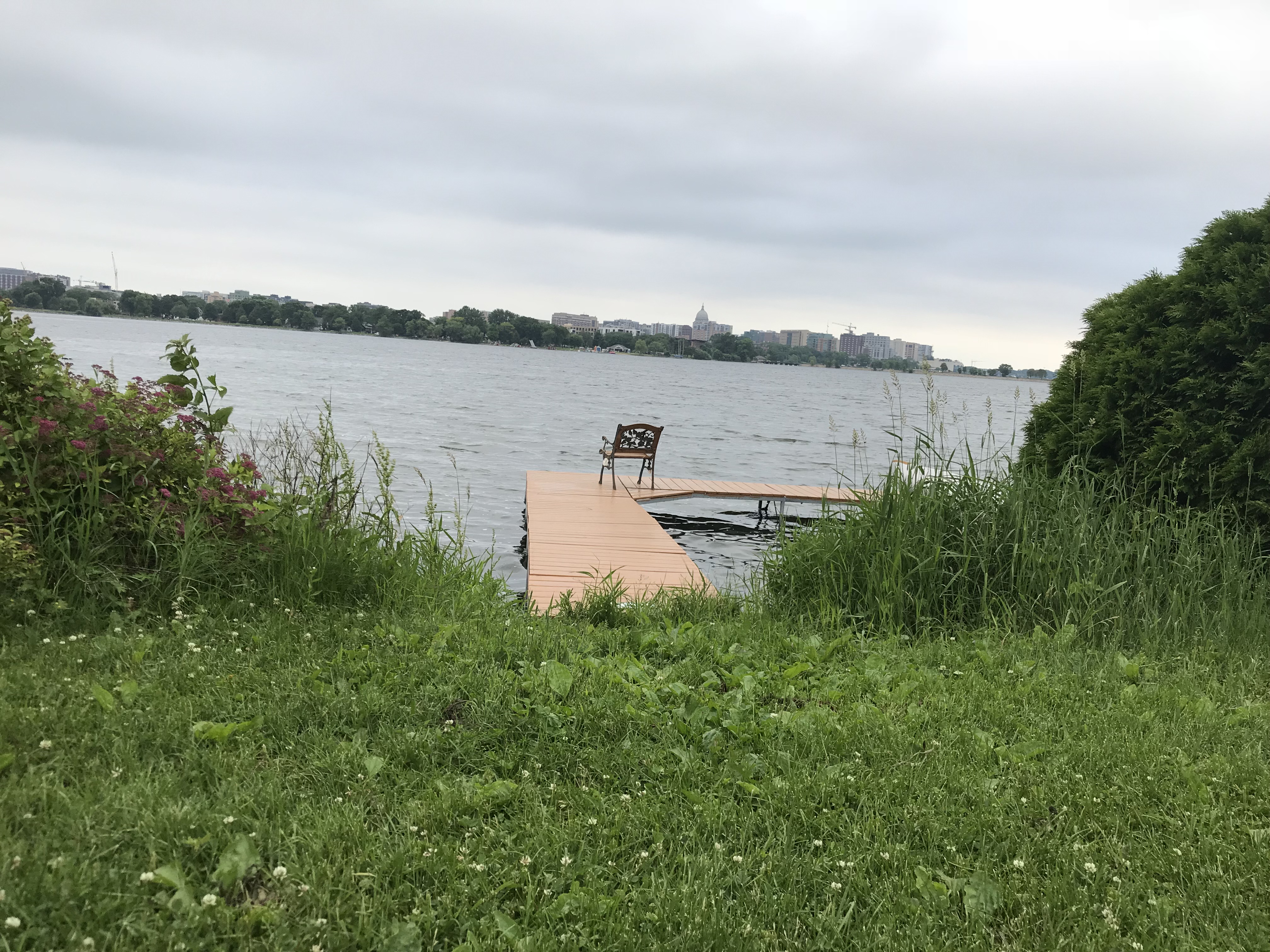
If anyone were to ask me how my time has been here in Madison I would most certainly answer "It has been wonderful. It's been an amazing experience and I am so lucky to have had the chance to spend the summer here doing research," and all of that is true, just not all of the time. It has been hard being away from home, and I'm sure that this is true for everyone to some degree who has spent long periods away from their loved ones. What I know is true for me, which may not be true for everyone but I think is endemic in our society today, is that regardless of how I am feeling I dress myself in an attitude of happiness to hide what I am actually feeling. Even if people ask if I am ok and I hint that things could be better or that I'm feeling under the weather, I will still mask it with happiness and optimism. But for once I don't want to have to be happy all the time, and if anyone every actually reads this blog I want them to know that it is ok to struggle and that it is ok to feel something other than happiness. No one should be ashamed of being sad or depressed, but I am. There is always an internal struggle between wanting to just get everything out and find comfort in the people close to me, and not wanting anyone to know that I am struggling and that my work might not be optimal. So I end up closing myself off, and when you are in a new place by yourself closing yourself off from others is one of the worst things you can do. I know that to help myself stay focused and away from depression I need regular contact with people. Even just going into the lab and working next to someone is better than nothing. One thing that is undeniably true is that I am very lucky to know the people that I do here in Madison. These people, being my mentors, the other REU students in the department, the graduate students, and my roommates, mean more to me than they know because they help me find a little peace just by being themselves.
I guess the one thing that I want to say is that it is normal to be sad during an experience like this. You are away from home and in a new and foreign place. But the sadness can be driven away. We have to let people into our lives that can help us, even if the help comes just from their presence.
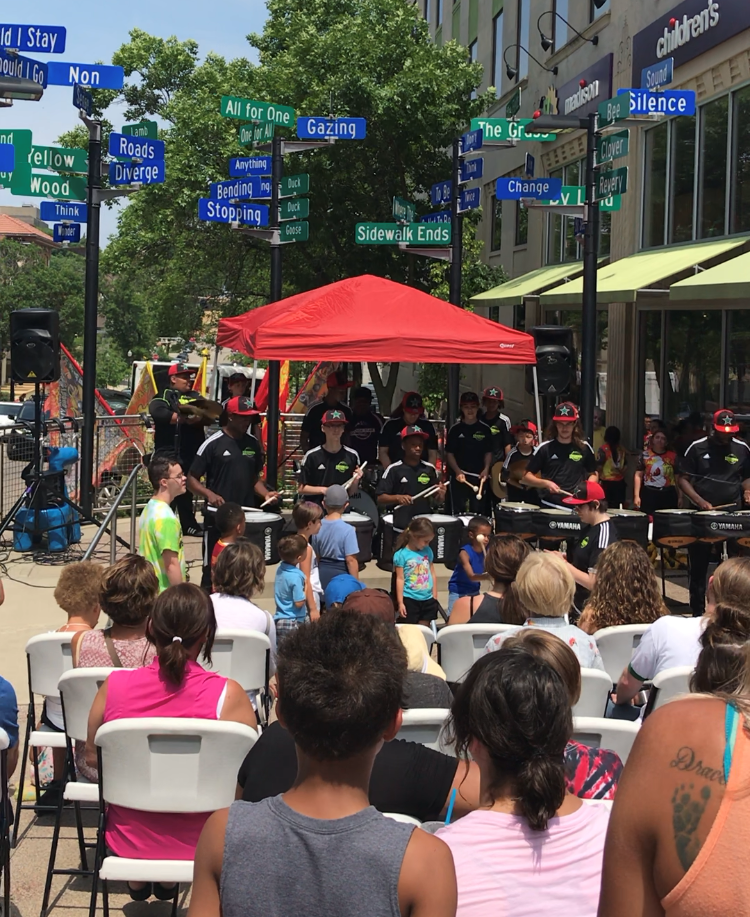


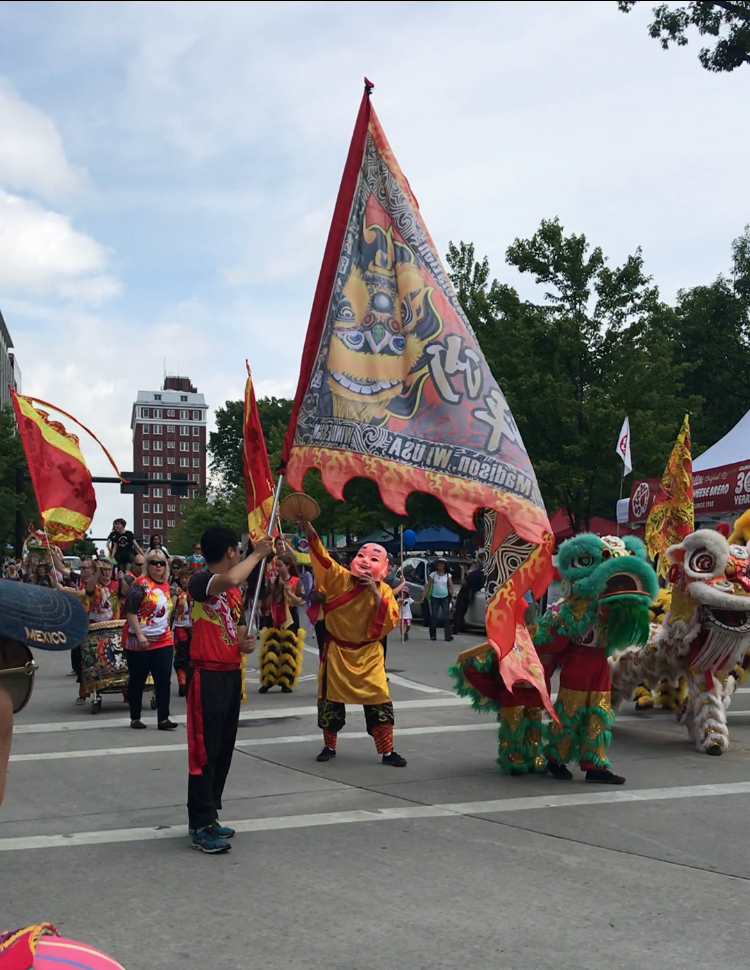
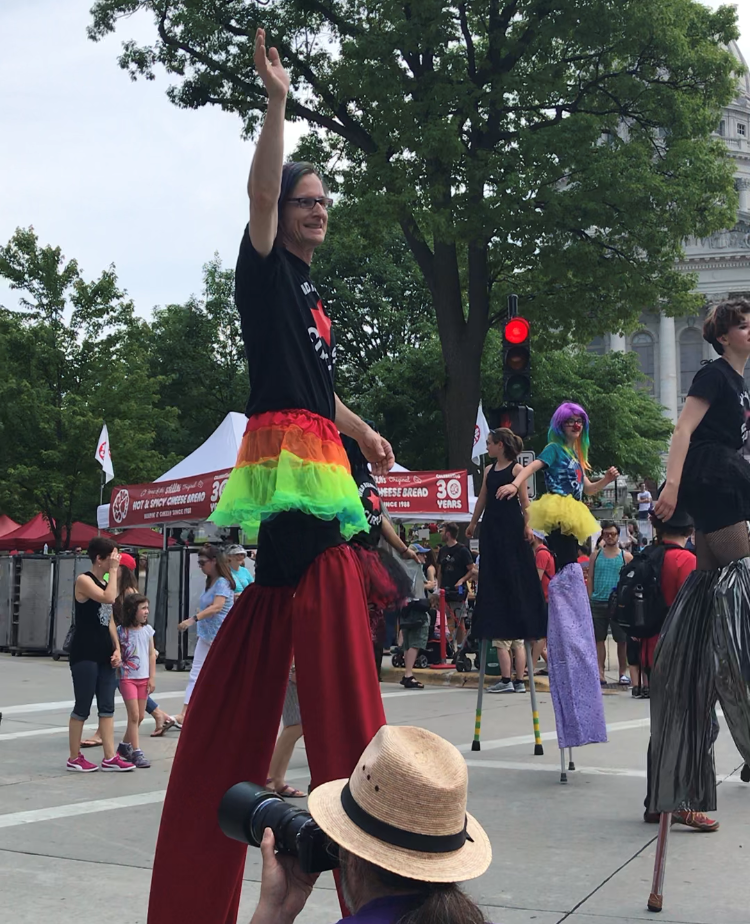
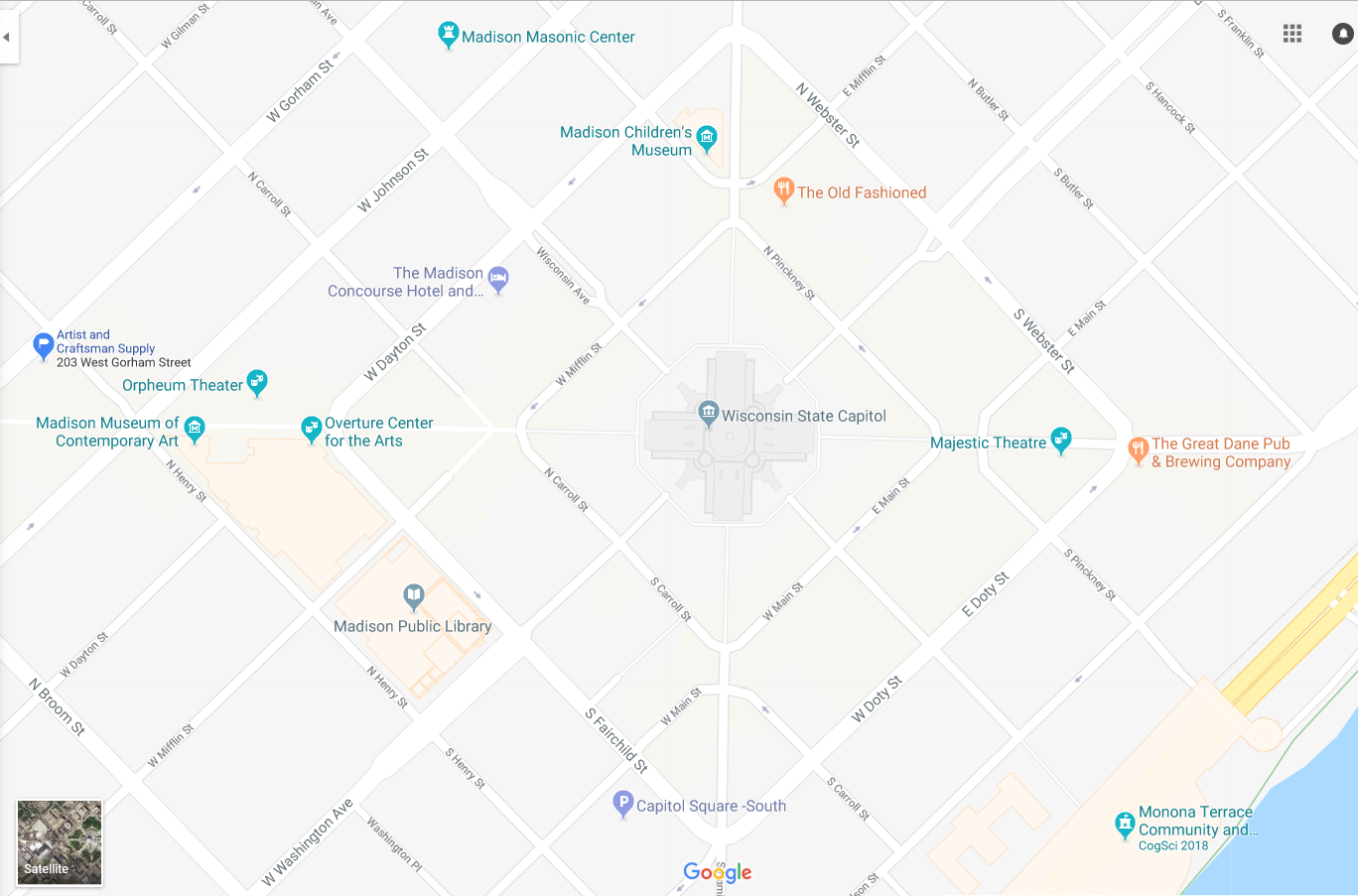
The very first full day I was in Madison, Professor Beckage took me up to the Dane County Farmers' Market. I have been told that it is one of the largest farmers' markets in the country and encircles Capitol Square. I go every Saturday to pick up fresh vegetables, bread, jam, honey, and sometimes gifts to take back home to my friends and family in Lawrence. But this Saturday was a bit different. It was still just as busy as usual, but there was a drum line playing on one corner, circus performers in another corner, a magician in another, and then a small but energetic parade marching around the market with small bands, dancers, stilt walkers, dragons, traditional drums, and the drum line. It was really a pleasant surprise. I met some of the PREP students there a little after the parade was finished and they were also impressed with the parade and the amazing community we have the opportunity to live with for a short while.
Dane County Farmers' Market The Madison Children's MuseumThis week has been at least semi-productive. I am now able to access the mysql database on the lab server which contains one month of the GHTorrent data. I am able to look through the tables and make queries on the data but I noticed that not all of the tables contained the data they were supposed to. Particularly the user and repositories tables were empty, and those are probably the most important tables in the database. The database came with a README file that contains code to restore the database, but when I run the executable ght-restore-mysql it fails. I have tried several different options to get around this problem like loading individual csv files into the table (but I don't have access to the file it reads from), changing the secure file privilege option or secure file location (but I don't have the privilege to change these), adding a new user with more privileges (but I have to have those privileges in order to make a new user with those privileges), and at this point I'm just frustrated and tired of trying to fix this problem. The best part is that Professor Beckage left for a conference yesterday and won't be back until Sunday night. I will still be in contact with her while she's gone, but I think she will be too busy to help. So, I will just keep reading papers and working on my proposal.
Reading Group Week ThreeDr. Schloss was our second faculty research presentation where she talked about her studies in color inference and visual communication. Her work in visual reasoning focuses on the visuospacial relations in making inferences (specifically with regard to color). How do people infer meaning from color? To begin to answer this question, she starts by explaining some of the different kinds of inferences we can make with regard to color. The first was a judgment about the color itself, ie. how much we like that color. This judgment can be shown to vary with how many things we like that we associate with than color. This gives rise to the color-concept associate space where each object or idea or entity we know has a map of colors that we generally associate with it, and each color has a map of objects that we generally associate with it. And, this space is continually updated with new experiences that we have. The next judgment we can make is about a concept given the color it is associated with as well as other concepts. This is called transmitting. One example that she gave of this was a small test at the very beginning of the session. She showed us three different school sigils, one red, one blue and black, and the other yellow, and she asked us to decide which school we would donate money to. We knew nothing about the schools and just had to pick one. I think all of us picked the sigil that used our favorite color out of the three options, so we were basing our decisions on our color-concept association spaces. The last judgment we can make is an assignment. What color best represents a certain concept? This idea is used all the time in color coded systems. One of her studies specifically looked at the best color coding system for garbage and recycling bins. Each bin has a map of colors it is highly associated with, so an intuitive idea is to use the color that is most highly associated with a given product to color its bin. But, there isn't a one-to-one correspondence of colors and concepts, so some products might have the same color. This doesn't help us identify which bin to use when trying to recycle. Her study showed that the best combination of bin colors was the one where colors that correlated highly with several things were used with the bin it correlated with the most, and then the other bins that were highly correlated with this color were given a color that highly negatively correlated with the other bin. For example, both paper and plastic are highly correlated with the color white but paper is the highest correlate. So, the paper bin would be colored white. Now a highly negative correlate of paper was the color red, so the plastic bin would be colored red. This kind of research is very intriguing and has many applications to marketing and advertising.
Dr. Schloss' Faculty Page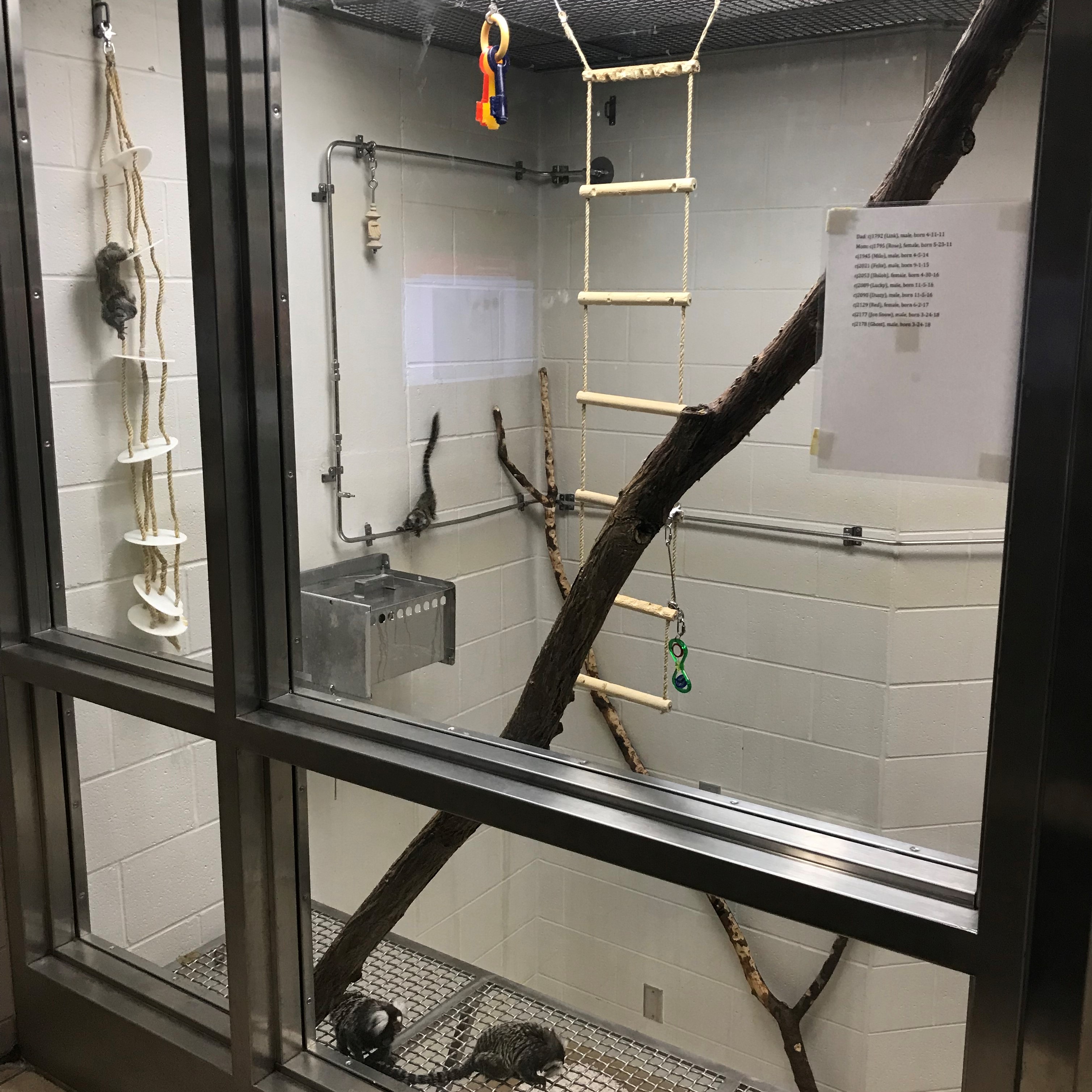
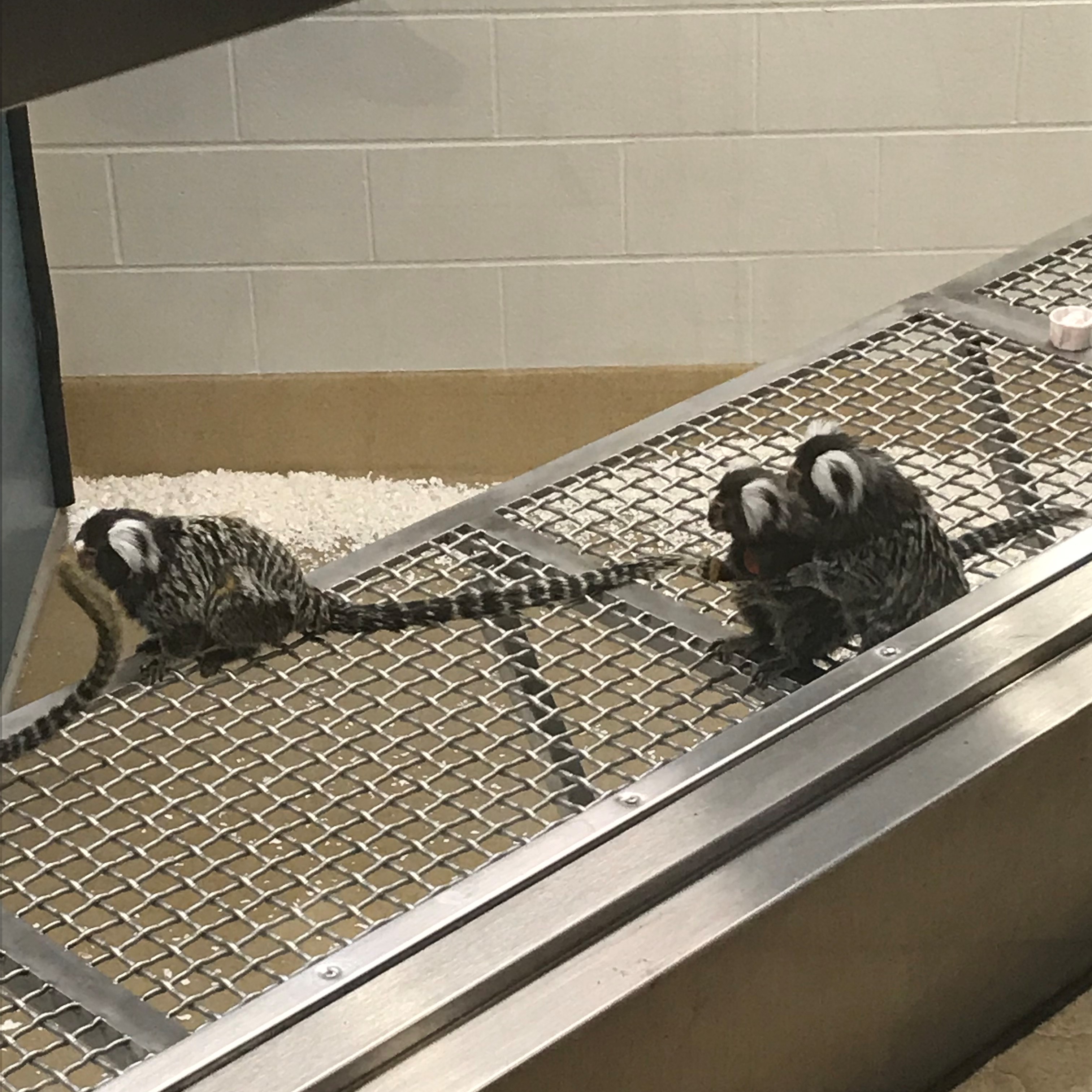
Today I went on my first lab tour with the PREP students to the Bennett Lab. Professor Bennett does research in Comparative Psychology with animals like apes and monkeys. To my surprise, the University of Wisconsin has one of few Primate Research Centers in the country and for part of our lab tour we got to go see Marmoset Monkeys! One fascinating thing I remember learning from the tour was that groups of Marmosets only have one pair of reproductive parents, meaning that all of the group members besides the highest ranking male and female turn off their reproductive processes and the whole group helps to raise the babies. When the babies are first born, they cling onto the back or the neck of the father and are so small that it is almost impossible to spot them. I though it was a truly amazing experience and had never seen anything like it.
This week I read a lot of papers. It was pretty much the only thing I could do since the database on the lab server wasn't ready for me to access yet, so I participated in our second reading group (paper linked below), I read the Base Challenge project description that Professor Beckage and Professor Austerweil were given in January, and I was given more papers to read on different mathematical models. The Base Challenge project description contained information about how the challenge works, what data they are given, the tests that will be used to 'grade' each team's model(s), as well as approximately 30 different questions that could be asked of the model to predict or explain. My task this week was to narrow down this list of 30 questions to a list of 5-7 that I could focus on in my model. My questions and focus are explained in my working proposal document which is linked below. Next week may be difficult because both Professor Beckage and Professor Austerweil will be gone for a portion of it, but we will do the best we can to keep in touch and work on any problems I have with the database.
Reading Group Week Two Working ProposalToday the PREP students and I had our very first faculty research presentation. The presentation was by Dr. Brad Postle who is also in charge of the PREP program. His talk was about the cognitive neuroscience of visual perception, attention, and working memory. He is interested in our visual working memory and how we make neural connections to form memories. One example he gave of our visual working memory was that of a pro basketball player who first sees his teammate running in front of him, runs past him with the ball, fakes a shot, and passes the ball to his teammate behind him with incredible accuracy. How did he know where his team mate would be? It was with his visual working memory that he could keep track of his location, his teammates relative location, and the relative locations of the players on the other team. It is a lot of information to keep track of and I'm sure the player has had a lot of practice doing it, but it is still amazing when you think about it. Dr. Postle gave us several other examples from his research, one of which was a study where participants judged the angle of movement in an animation while inside an fMRI machine. He and his students found a way for the participant's head to be inside the machine and for them to use their dominant hand to rotate a dial to match the angle they perceived in the animation. They were then able to use the fMRIs and Multivariate Calculus to determine the general location of this process in the brain. It was definitely an amazing study, but one worry that I had was that they did not take into consideration the cost of the process of moving one's hand to rotate the dial. This process is probably mixed in with their results and might skew the activated regions observed by the fMRI.
Dr. Postle's Faculty PageThe Psychology Research Experience Program (PREP) is an undergraduate research experience program funded through the UW Psychology Department where psychology students are mentored by professors within the department for the summer. Although I am not part of this program, I have been invited to participate in their activities and guest lectures. The PREP students arrived today and I will be meeting them tomorrow morning during breakfast! I am excited to meet some new people and maybe make some friends.
For more information about PREP, you can visit their website below.
psych.wisc.edu/PREP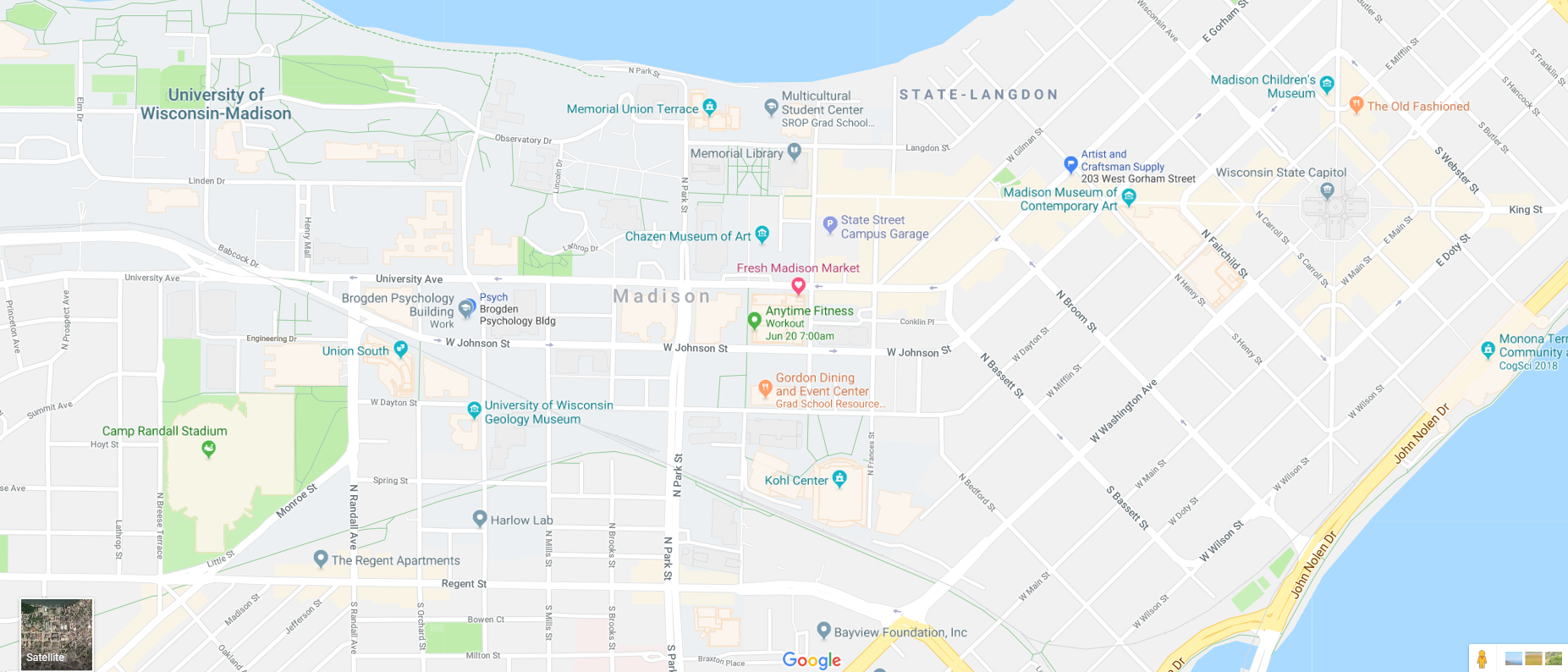

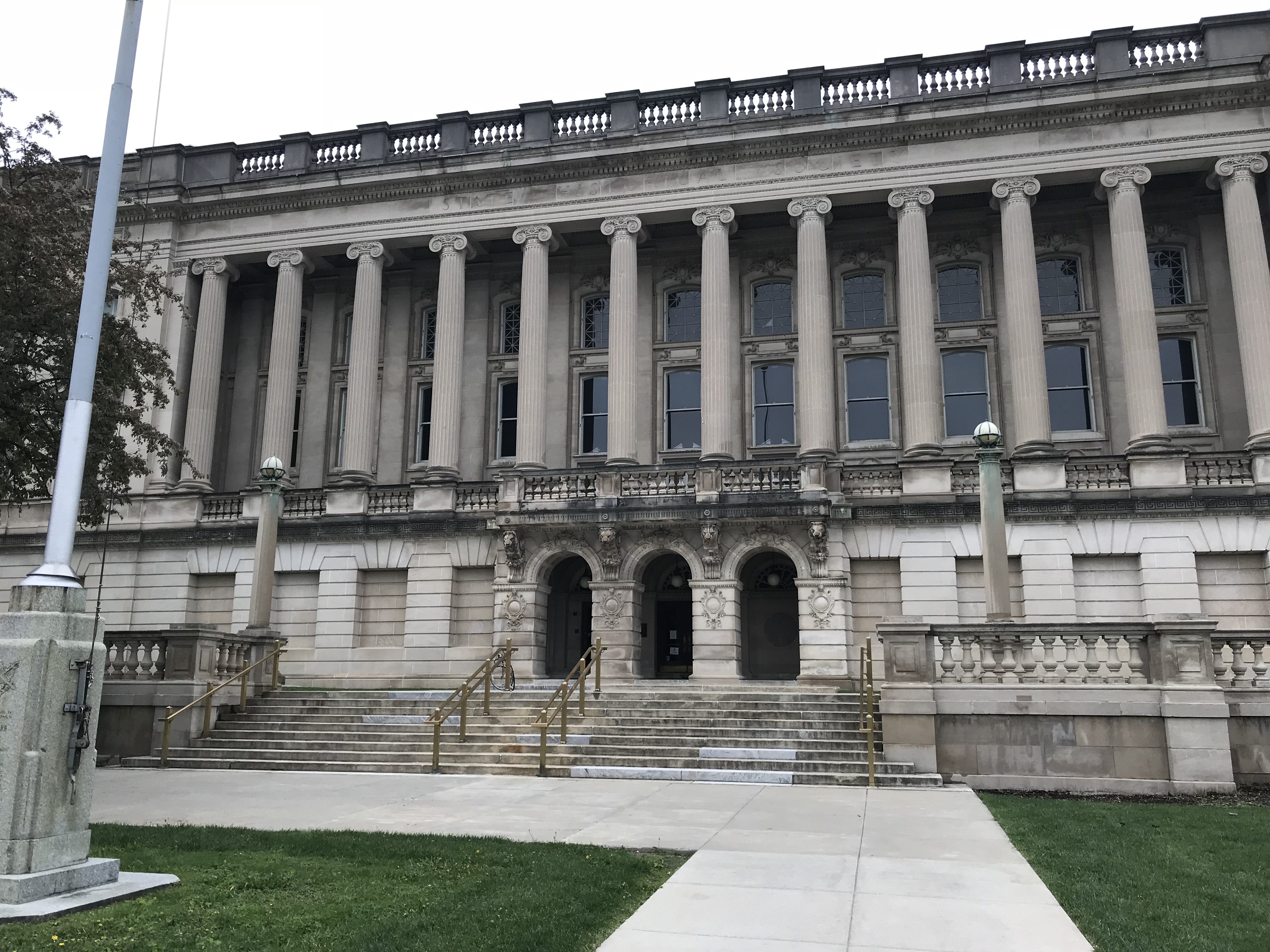
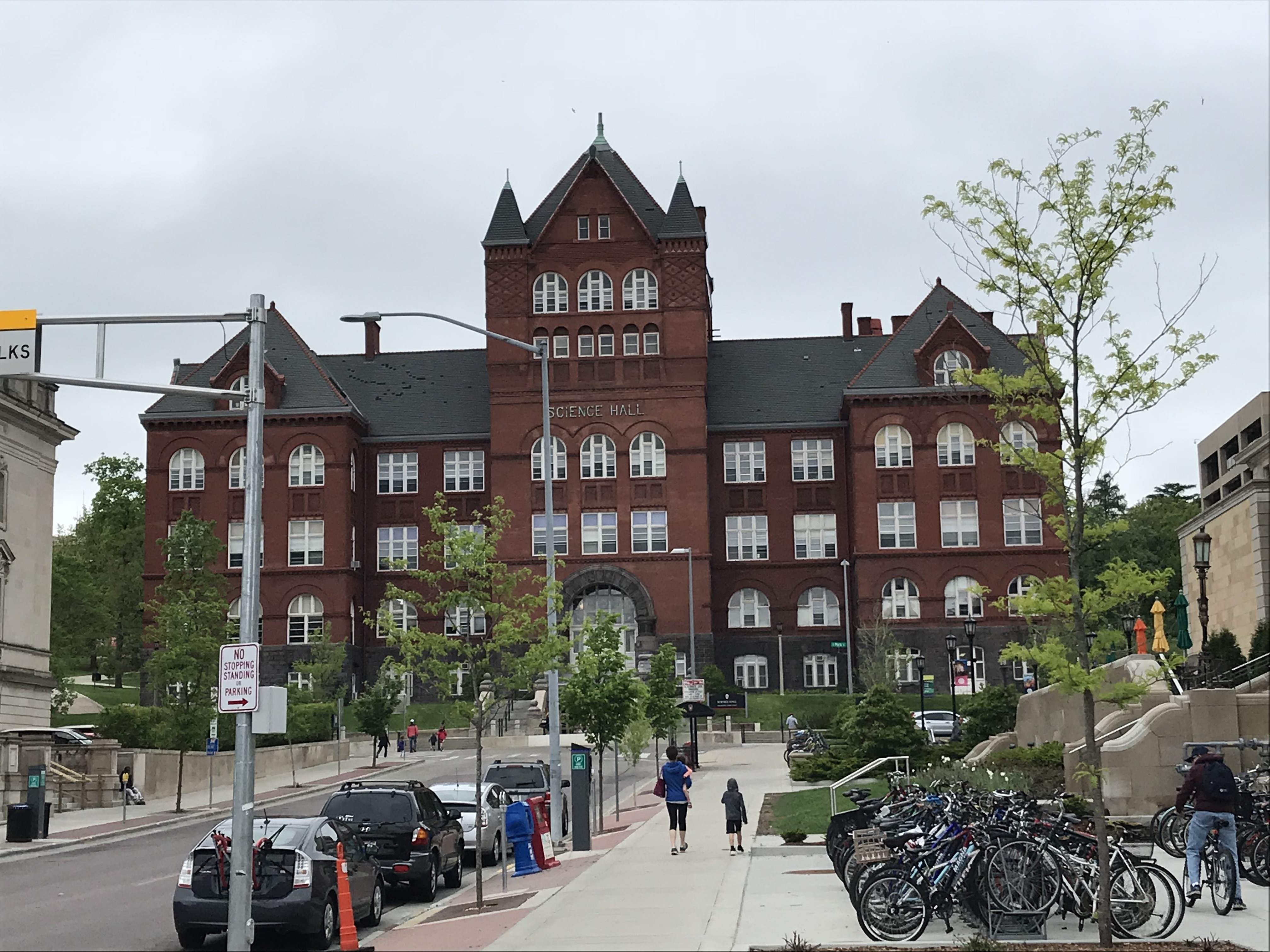

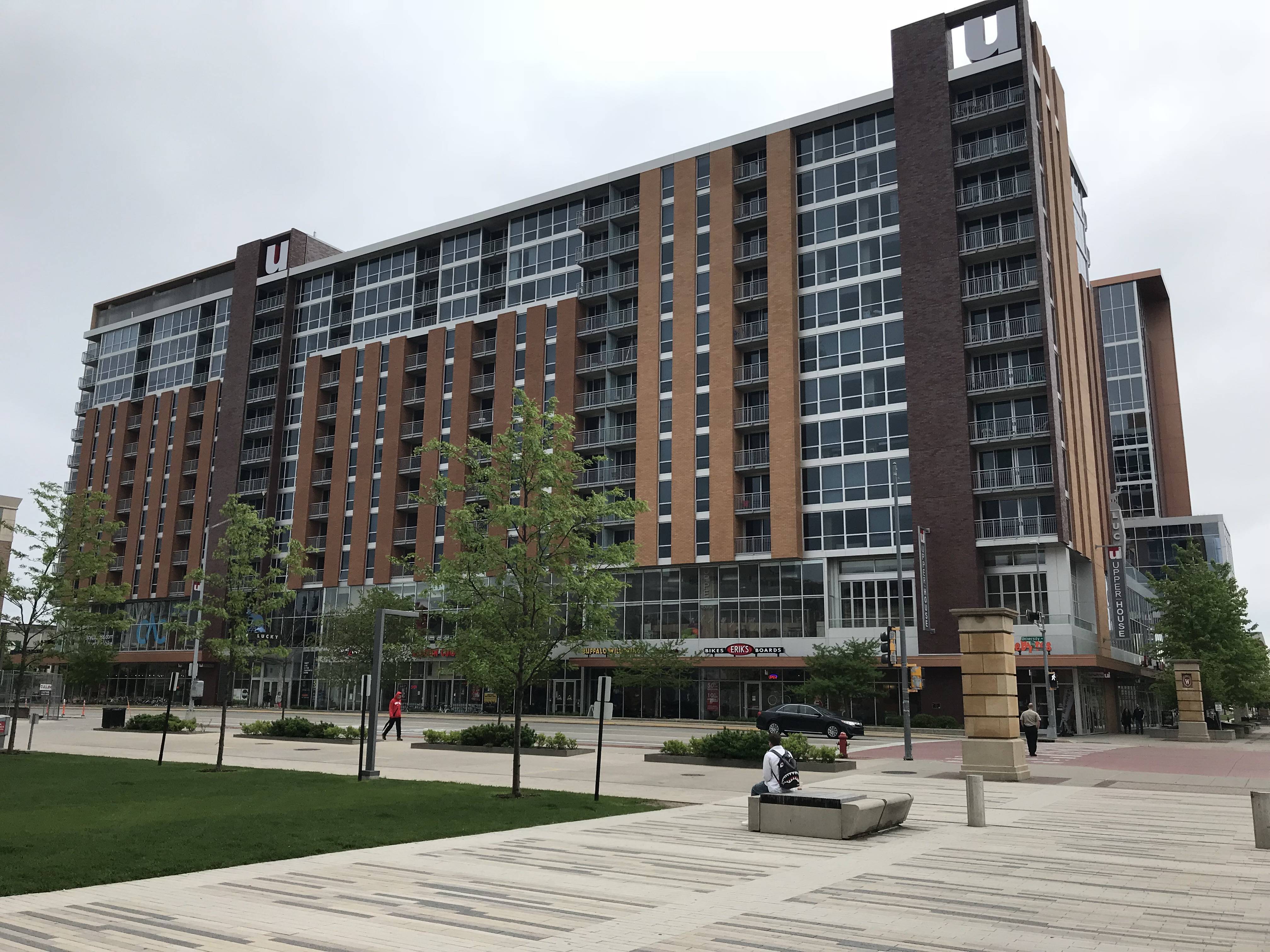
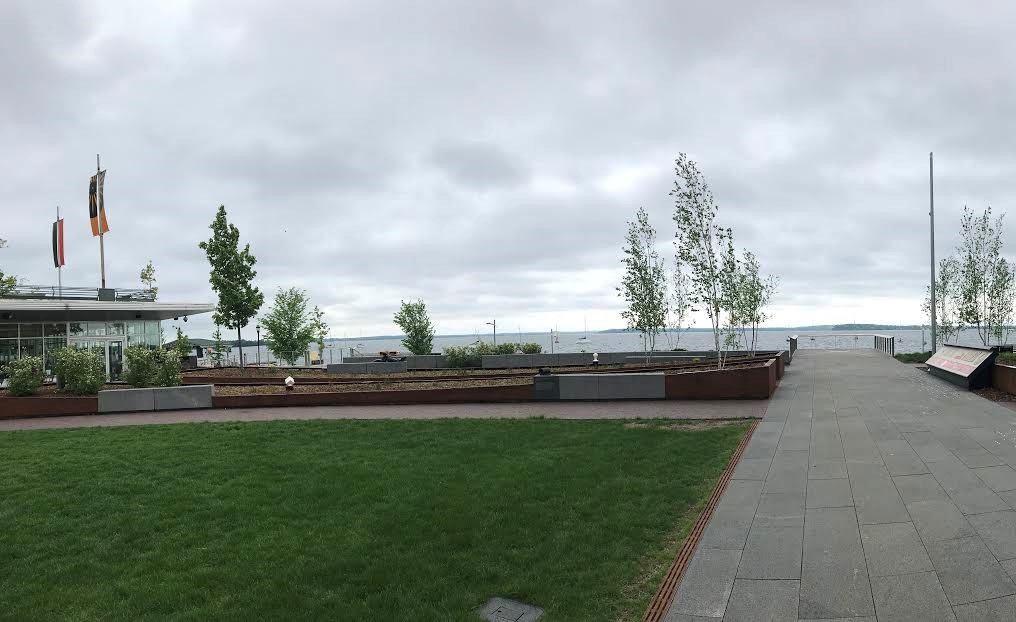
I am so glad that I was able to bring my bike with me up to Madison. It is so easy to get around! Madison has several different bike paths around the lake and through the city, and there is usually a designated bike lane in all the streets as well. So, today I decided to go up to campus on my bike and look around. I found the Psychology building, the Memorial Union Terrace, and several shops at the East Campus Mall. Above are pictures of some of the buildings around campus and the view from the terrace of lake Mendota.
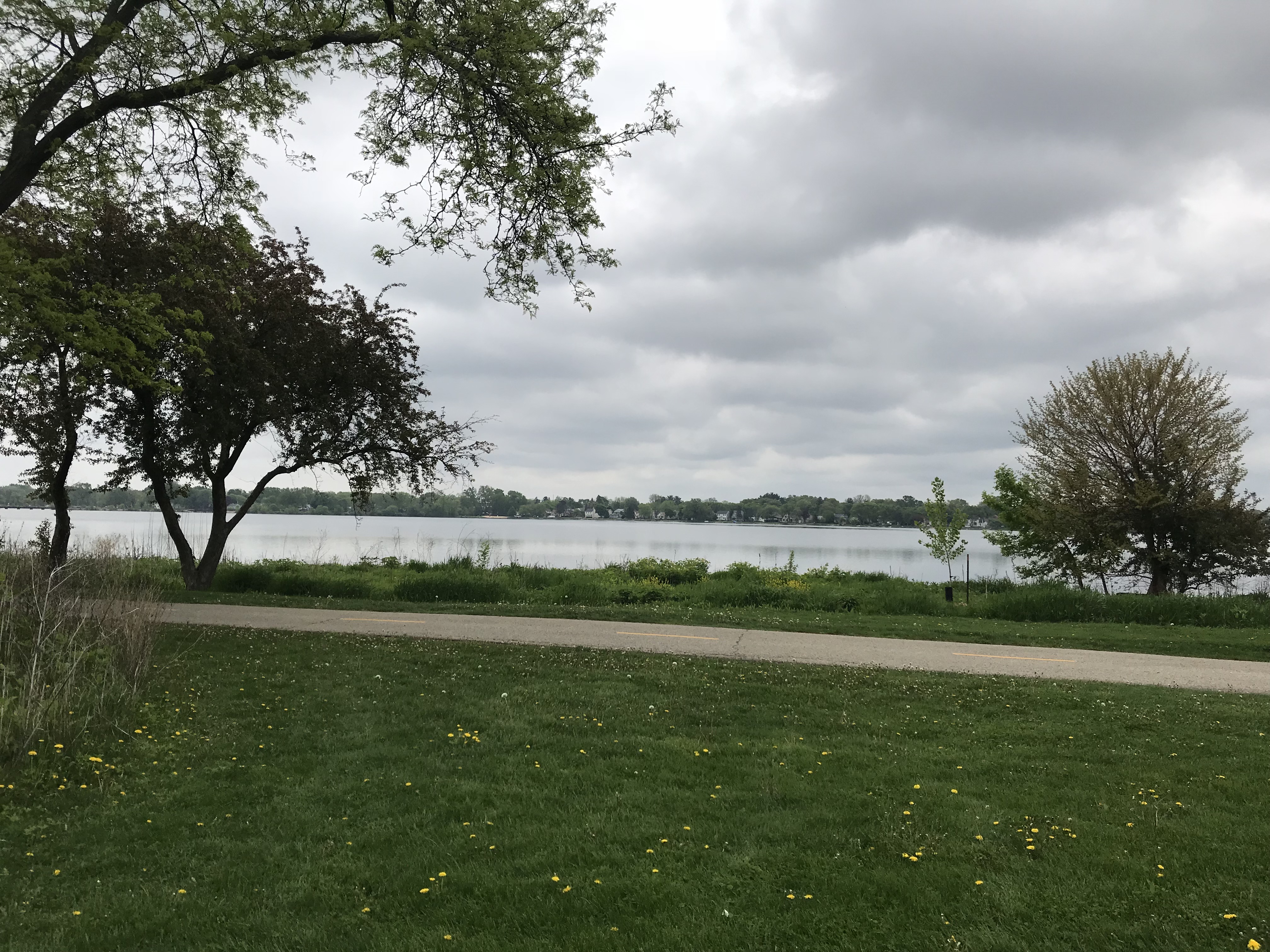
I arrived in Madison Wisconsin at my new home away from home late in the evening on May 18. I spent that first weekend getting situated in the house and getting familiar with my neighborhood, campus, and around the capitol. Madison is so lively and the lake (which is two blocks away from the house) is beautiful. The first day in the lab I met all the graduate students, post-docs, and professors in Professor Austerweil's lab and some of us went out to lunch together. The rest of the week in the lab was spent getting my computer fixed at IT, downloading software, participating in the lab reading group, and reading papers for my lit review. Overall I think it has been a good first week, and next week I should get more familiar with my project and get connected to the lab server.
Reading Group Week One